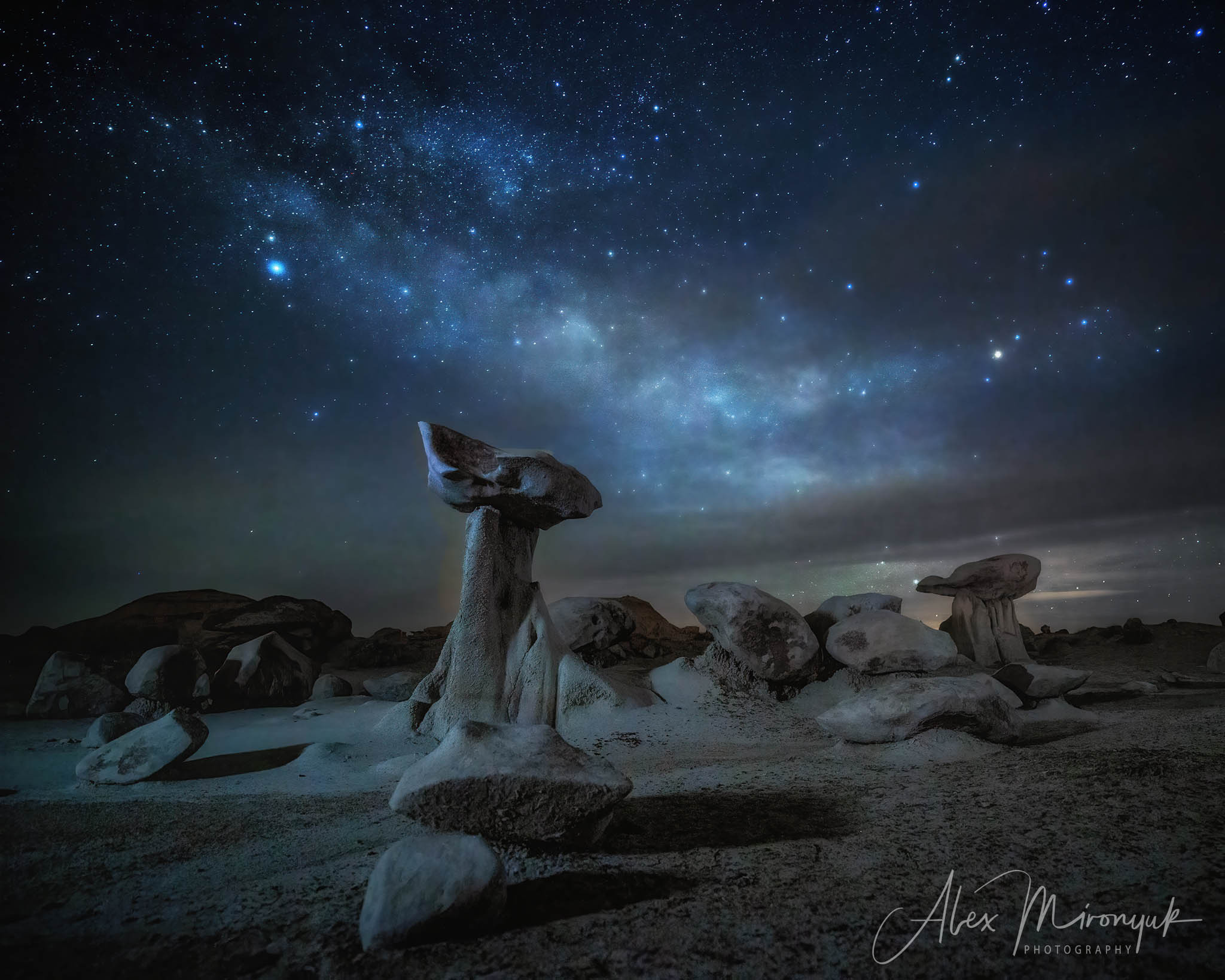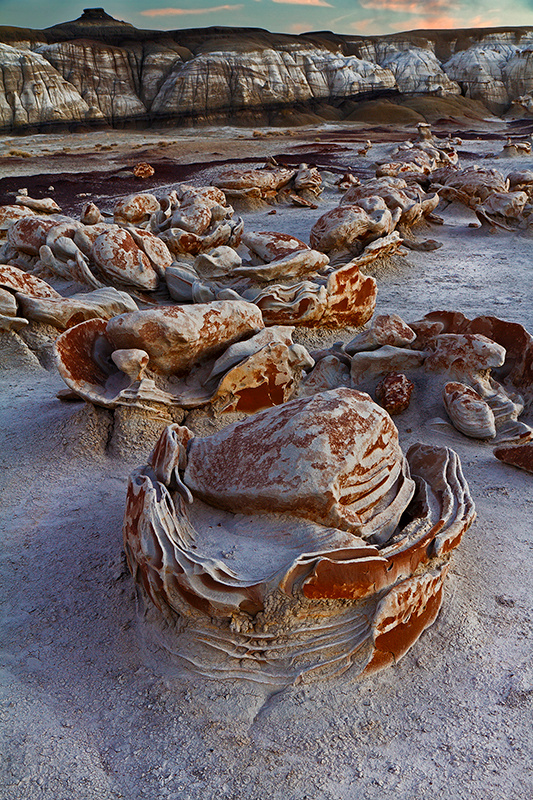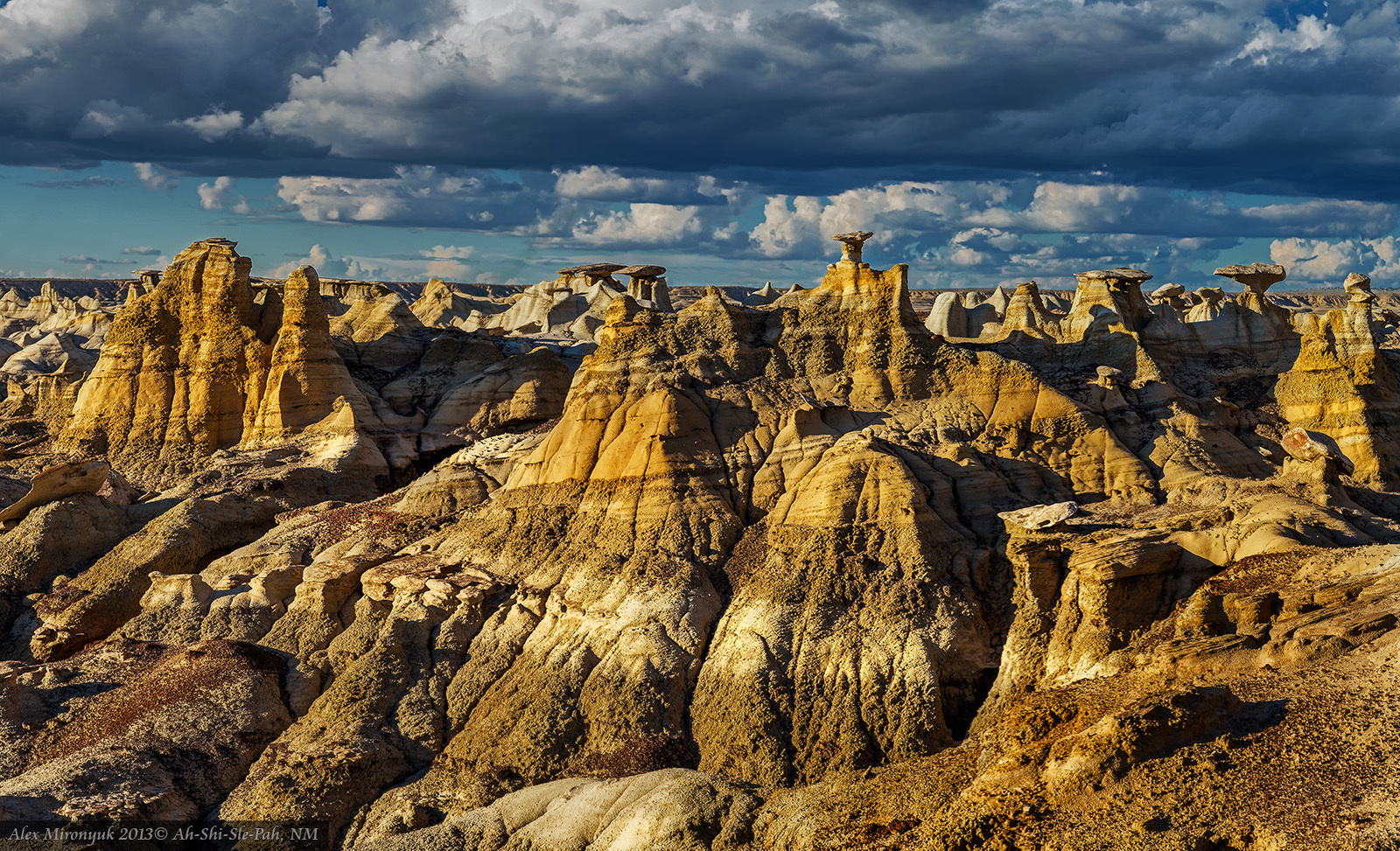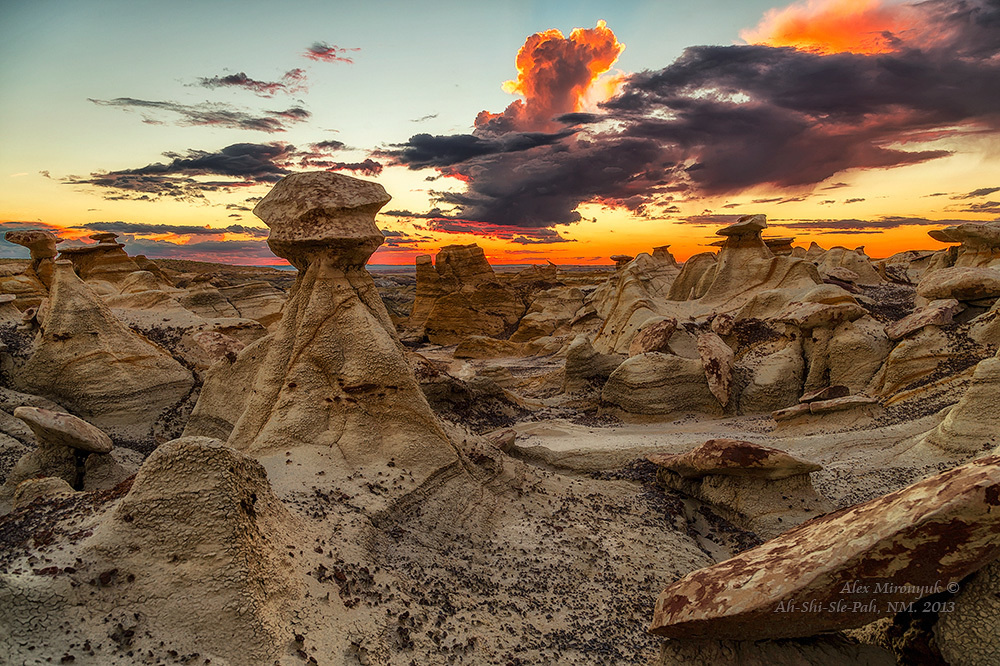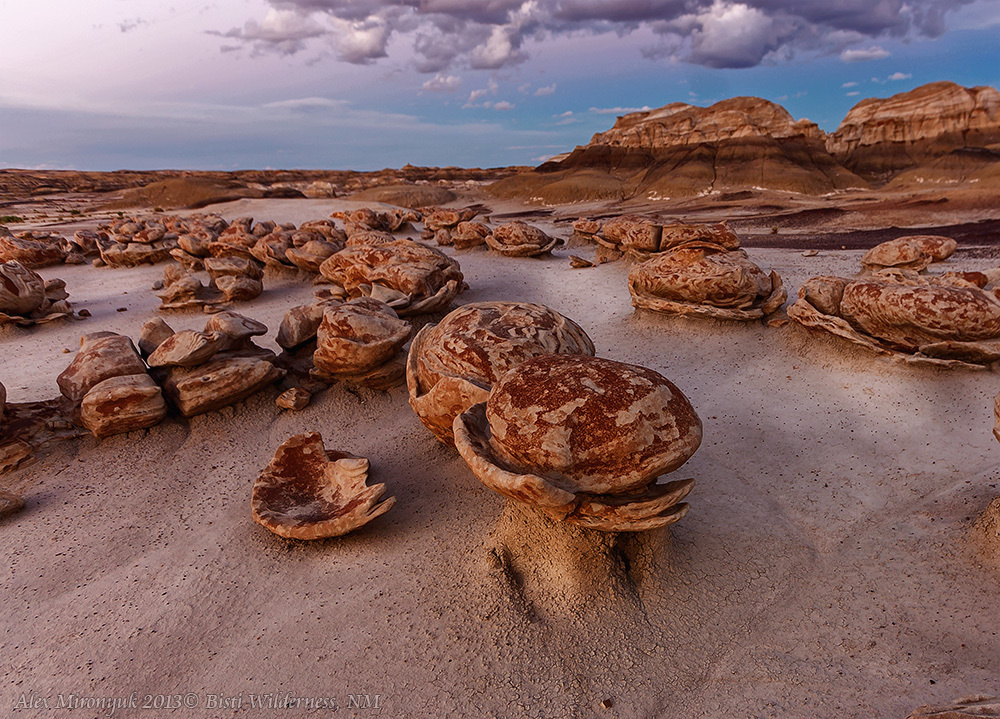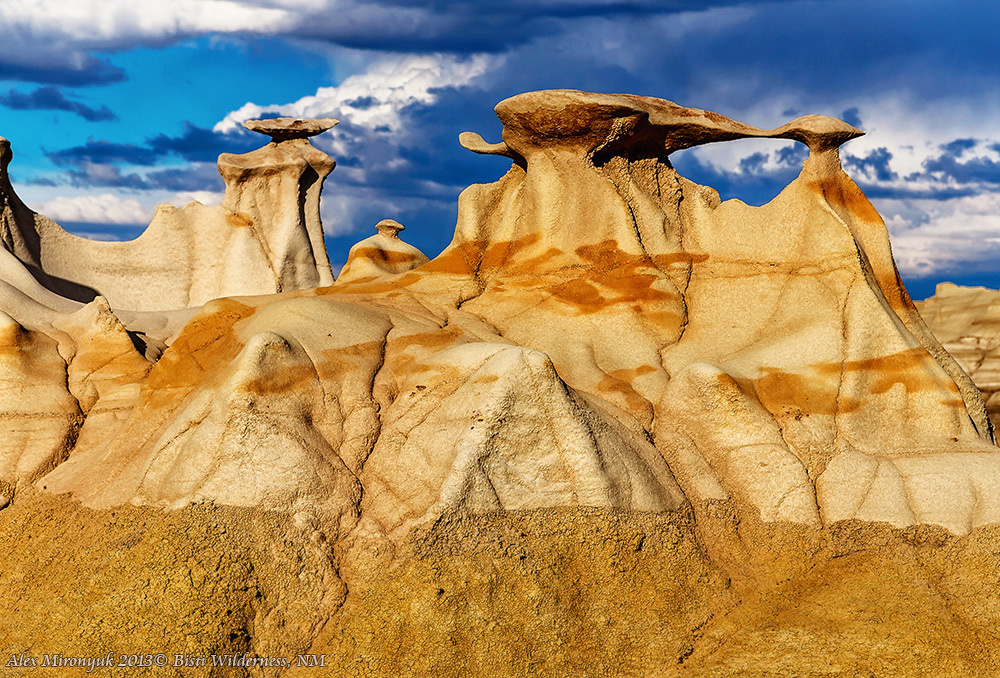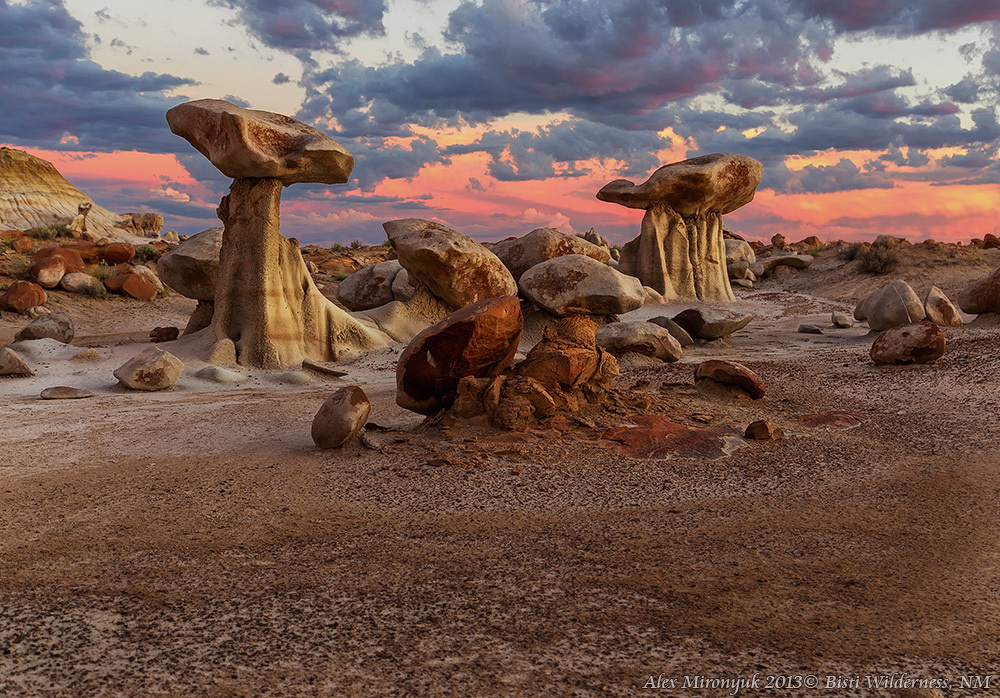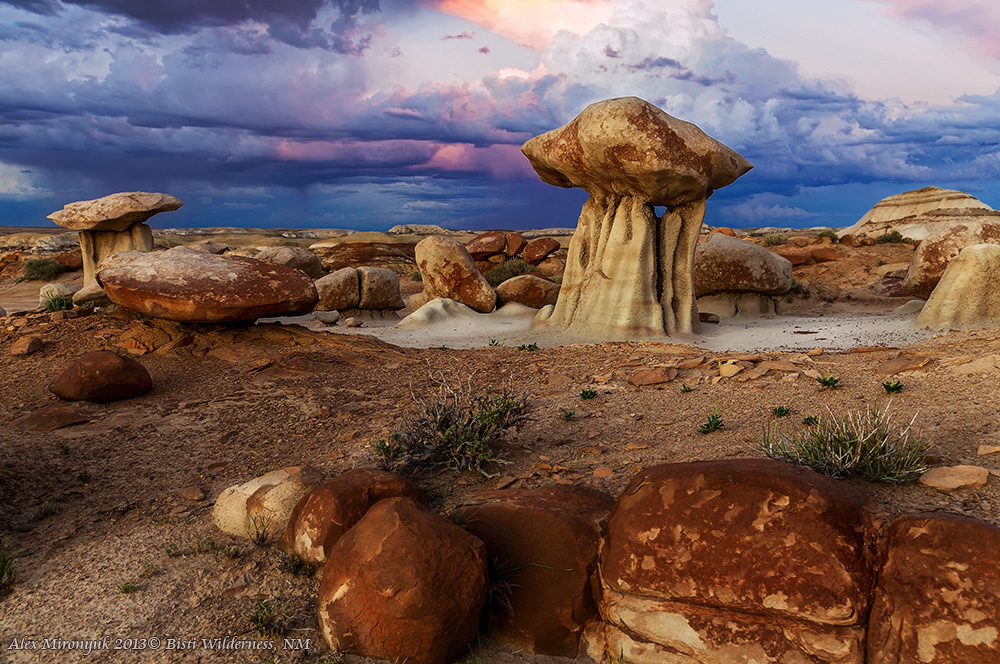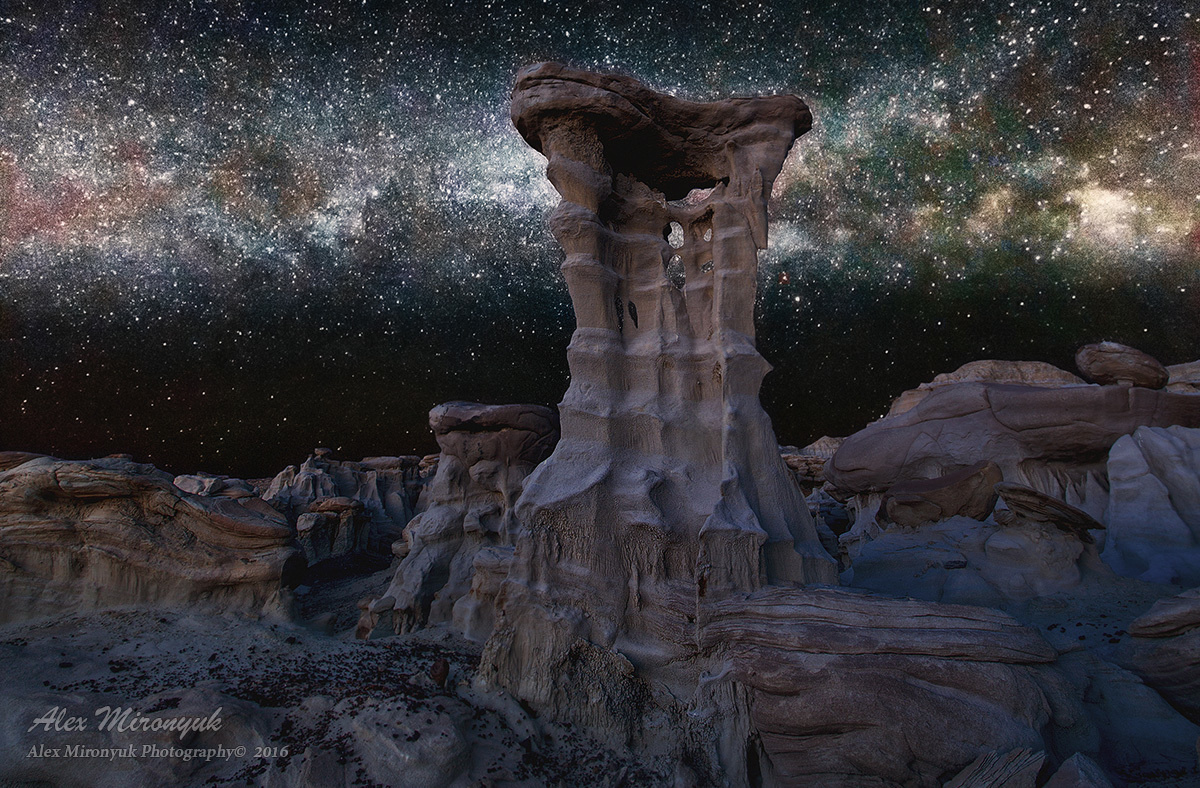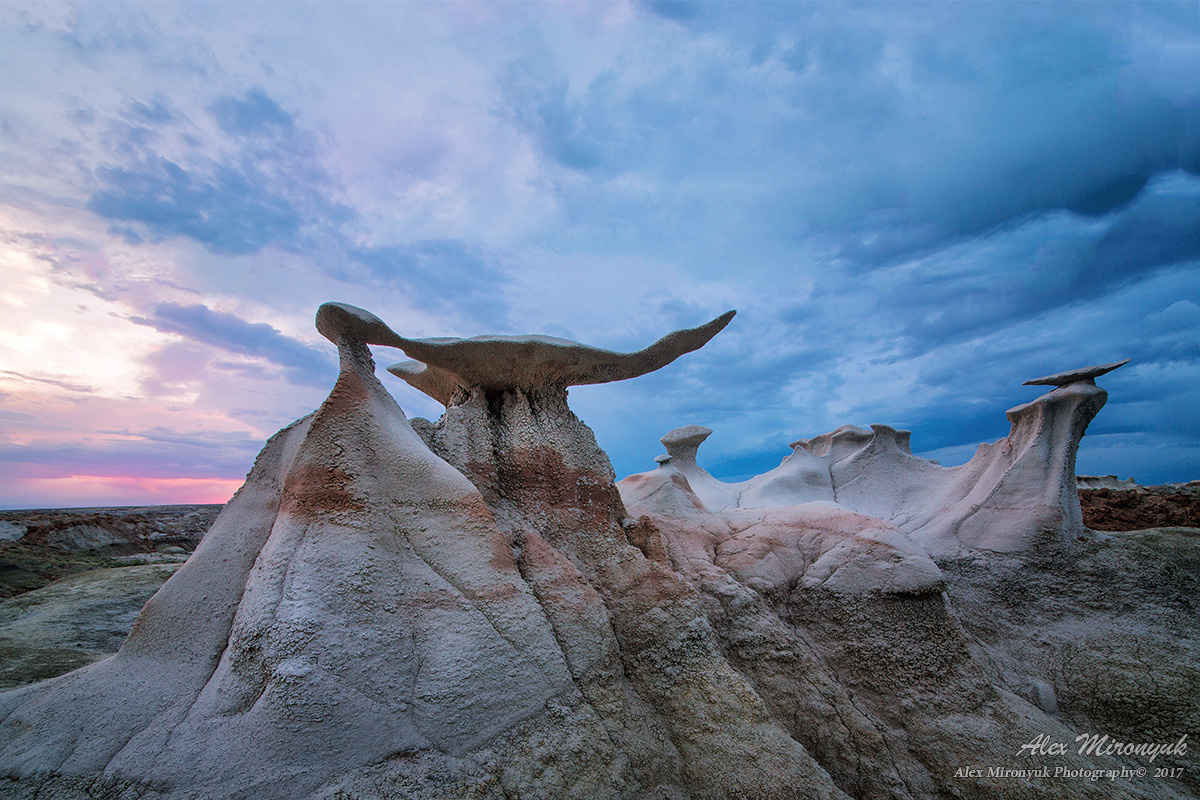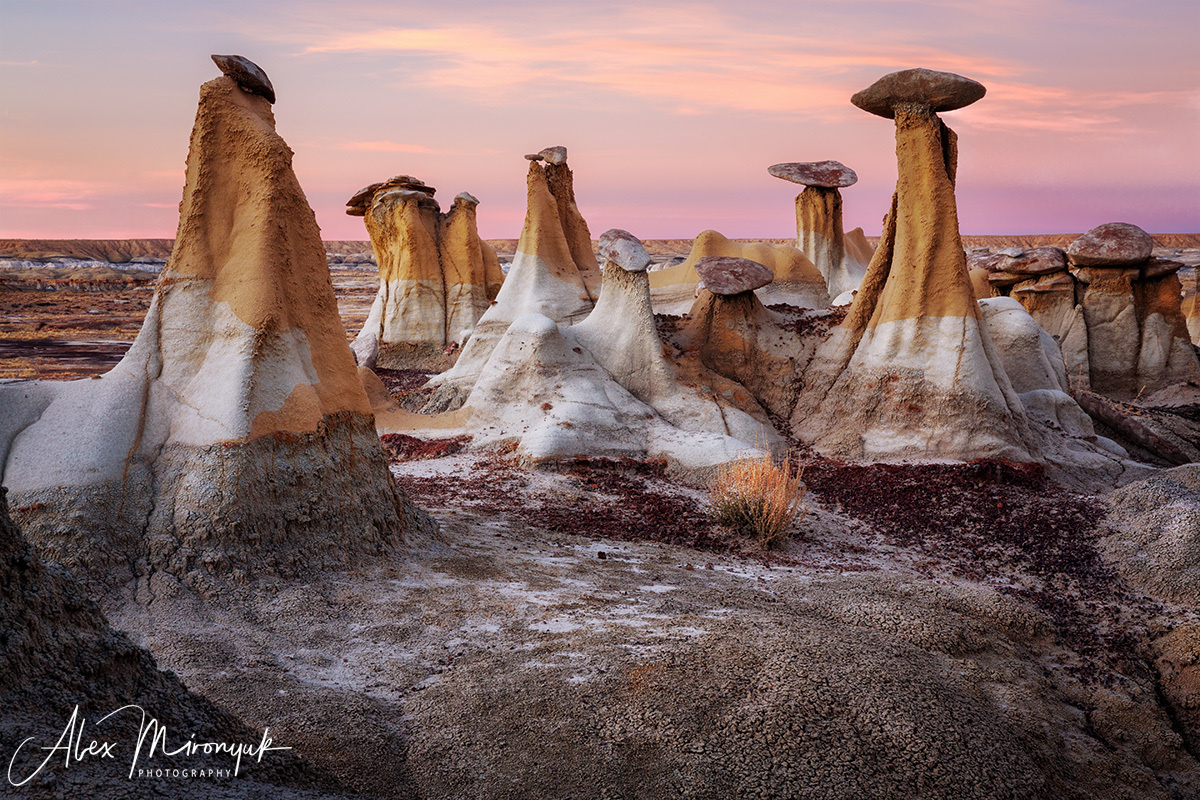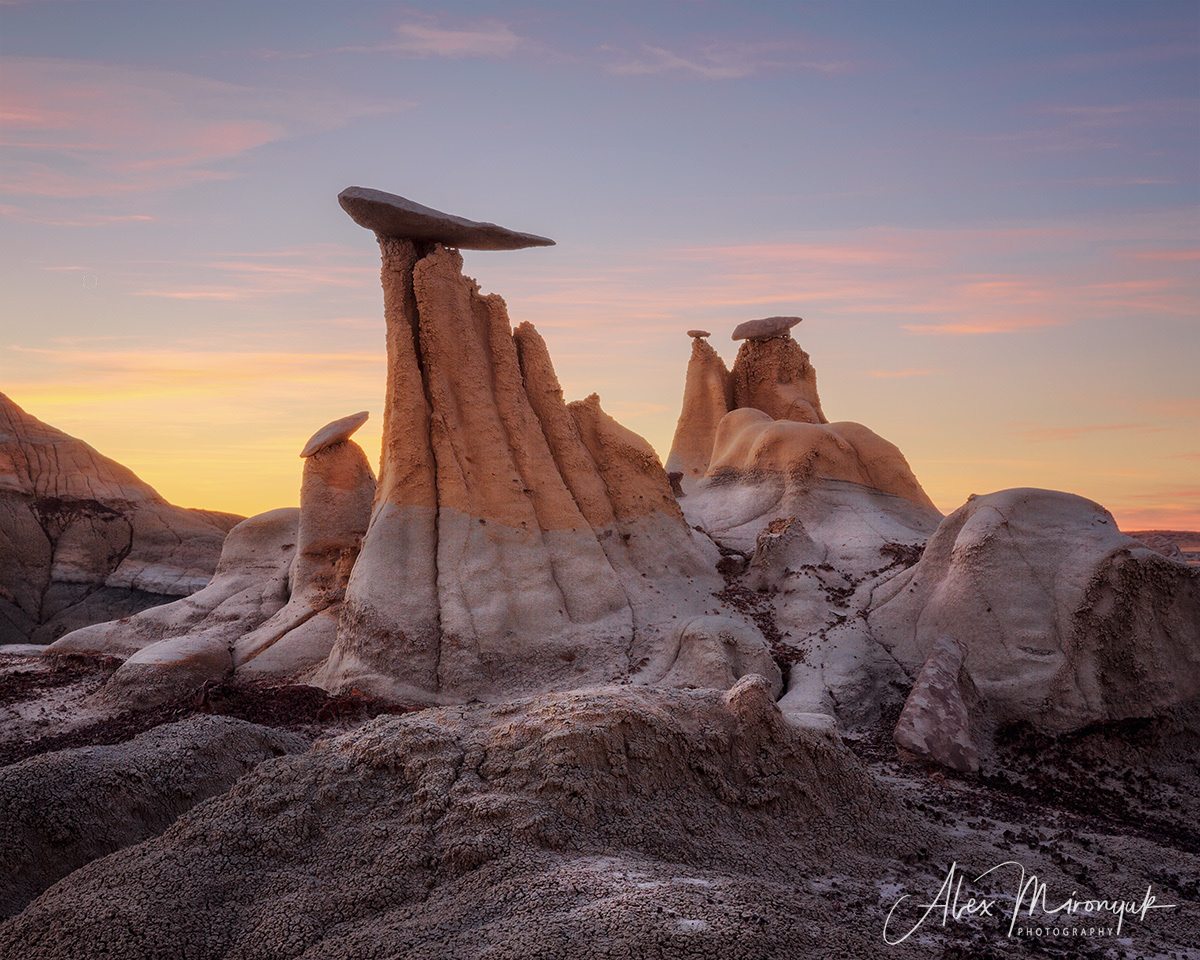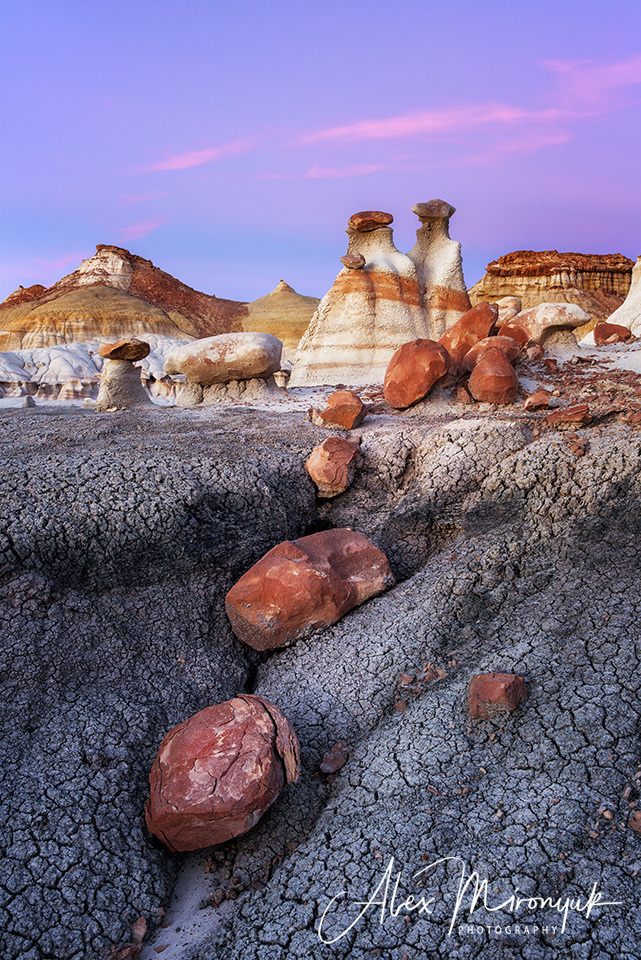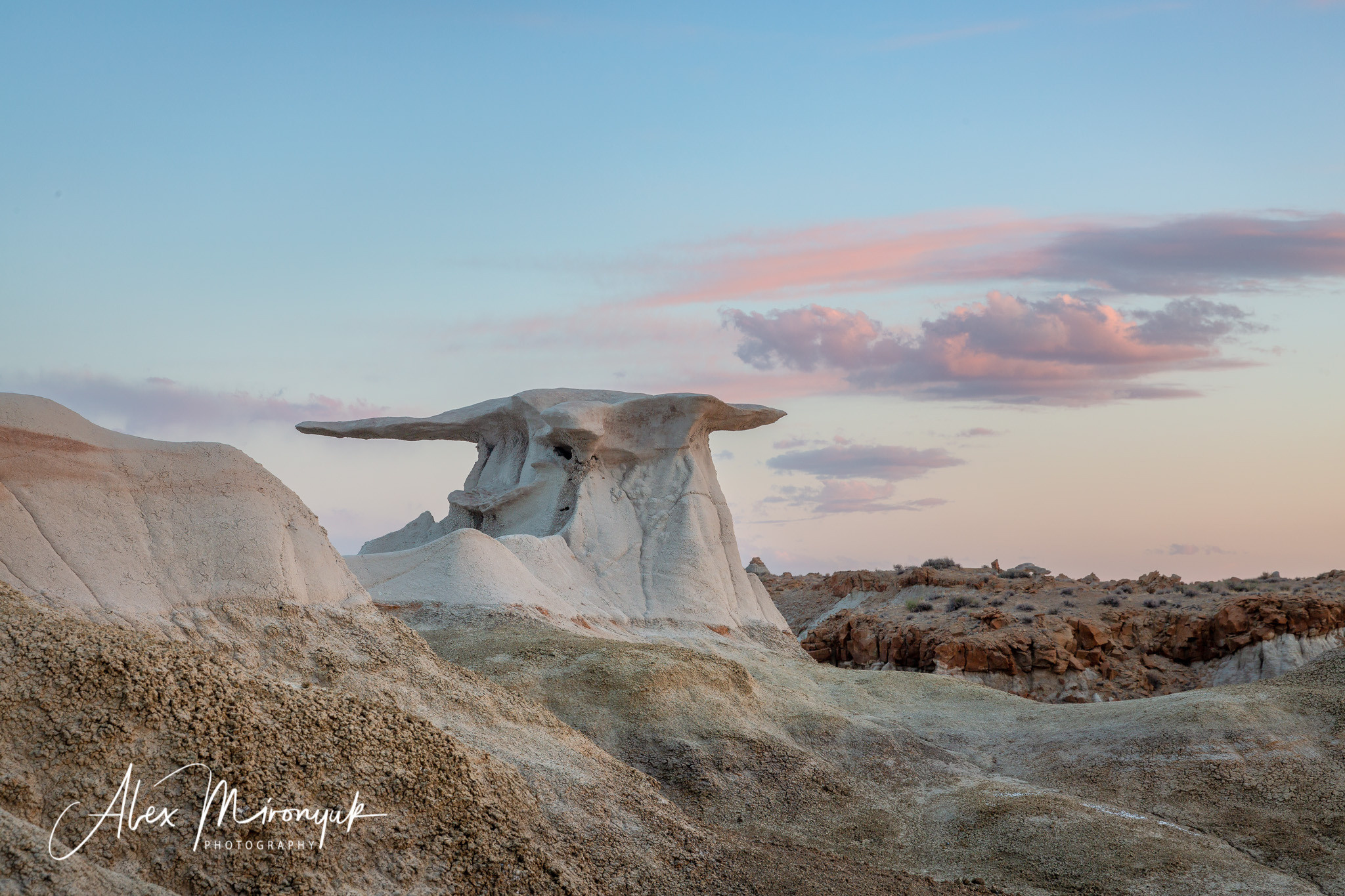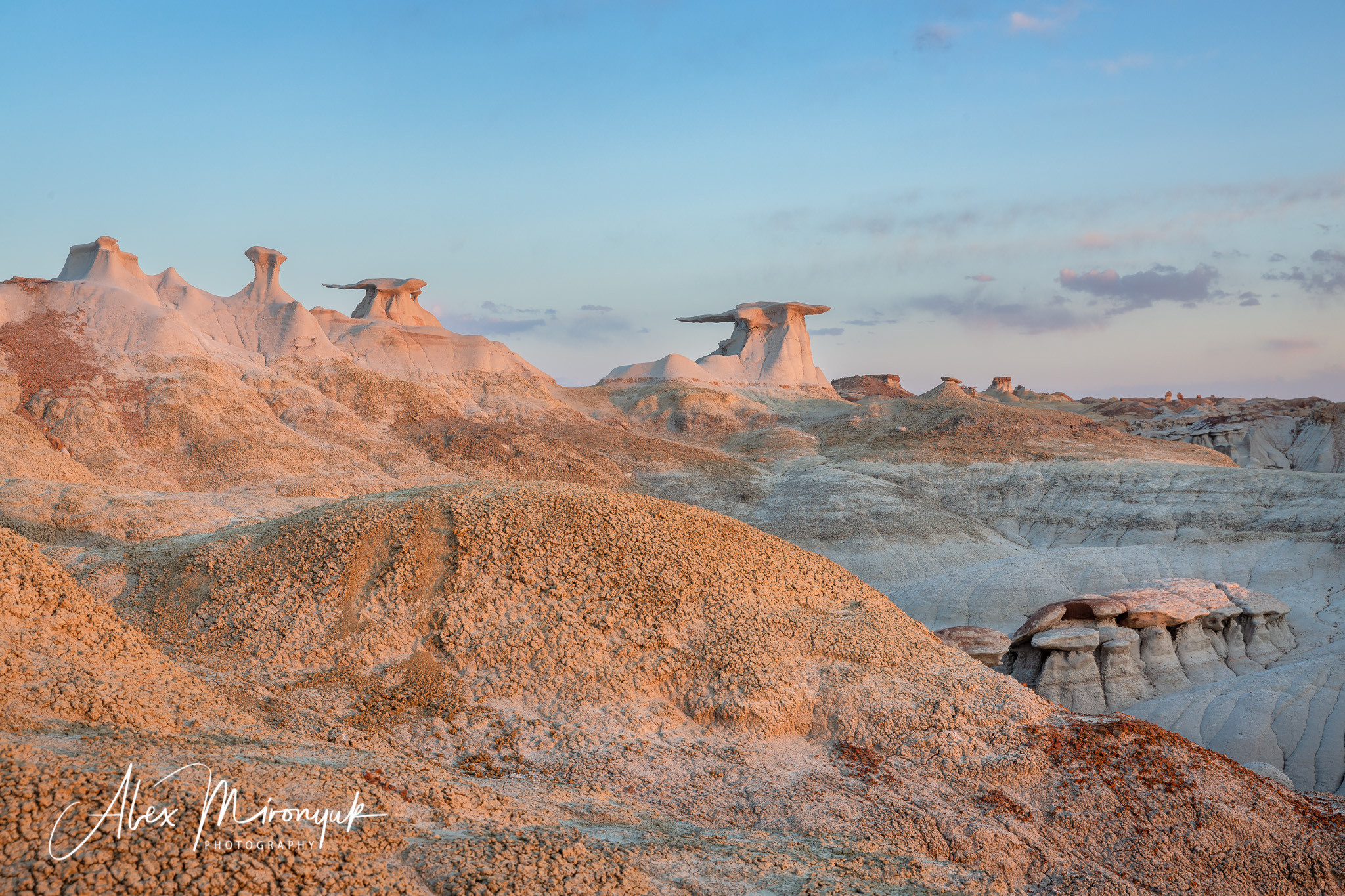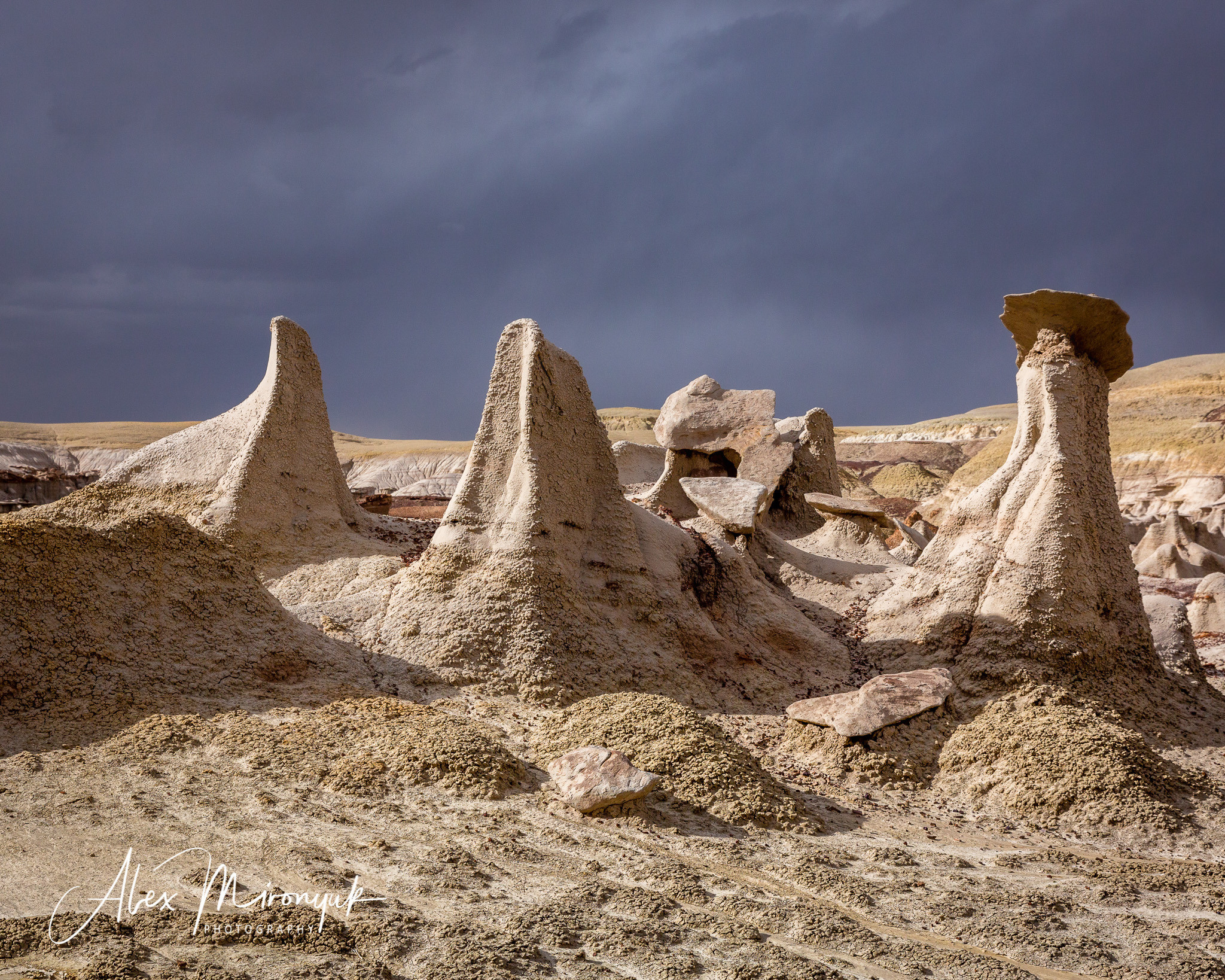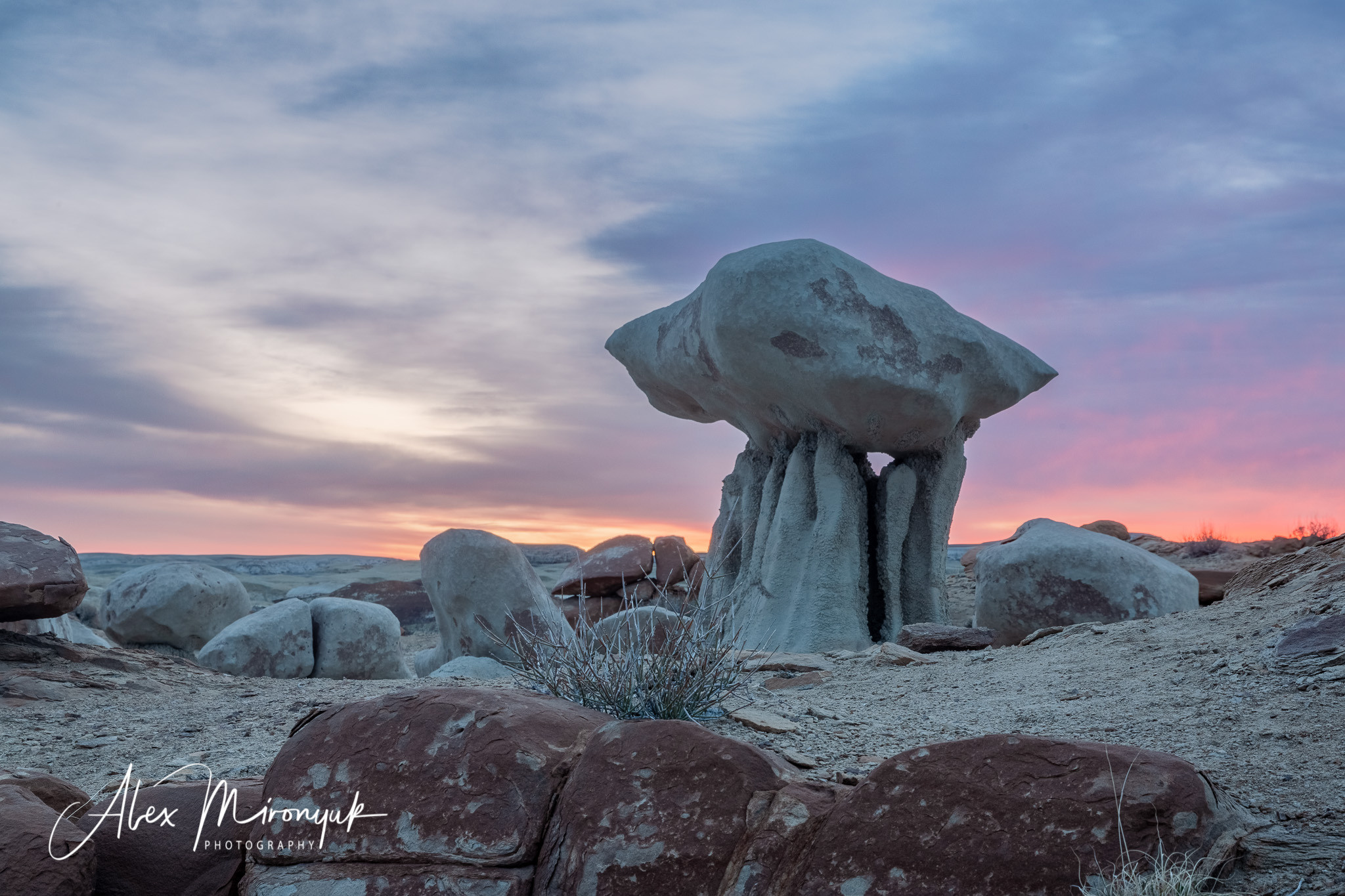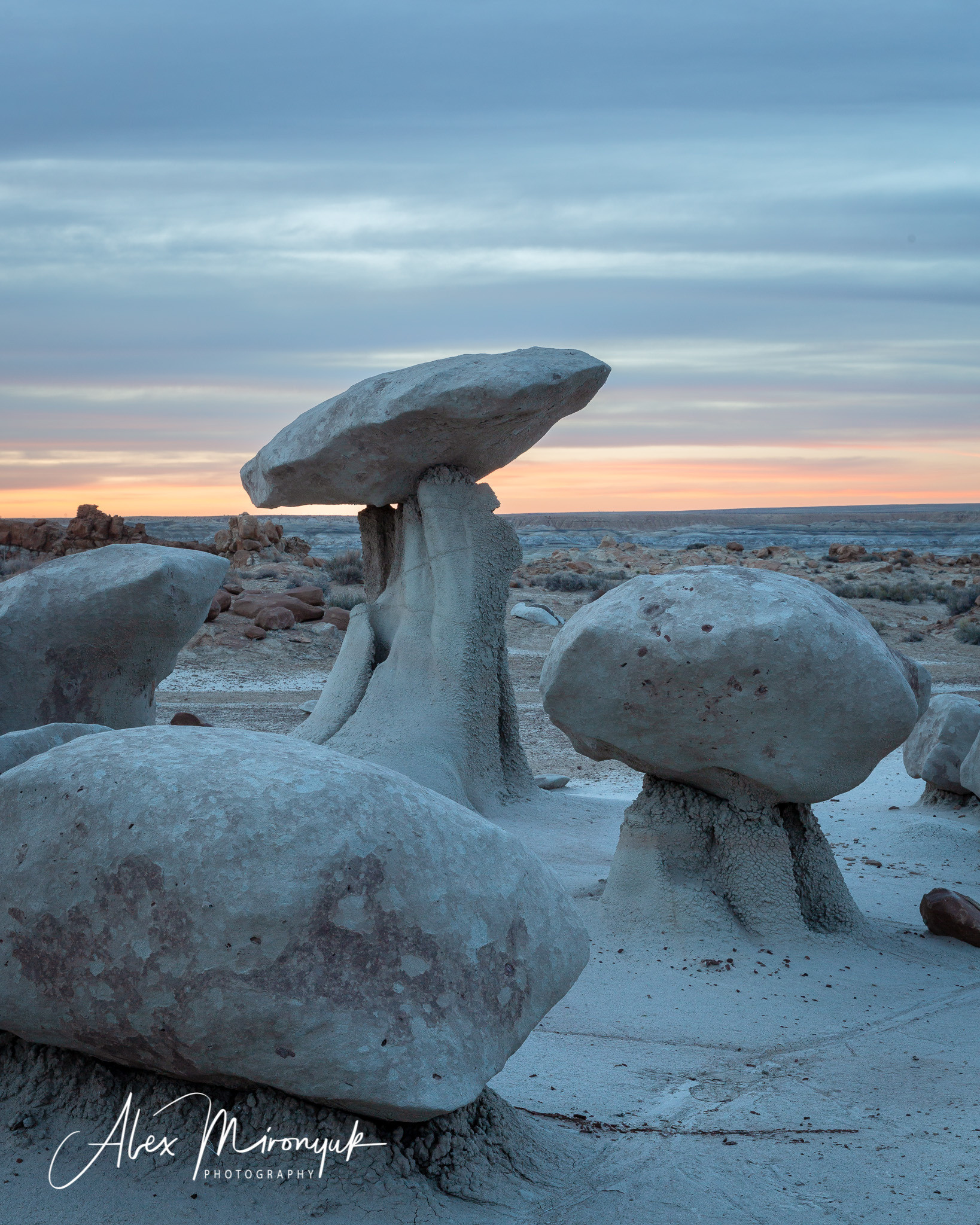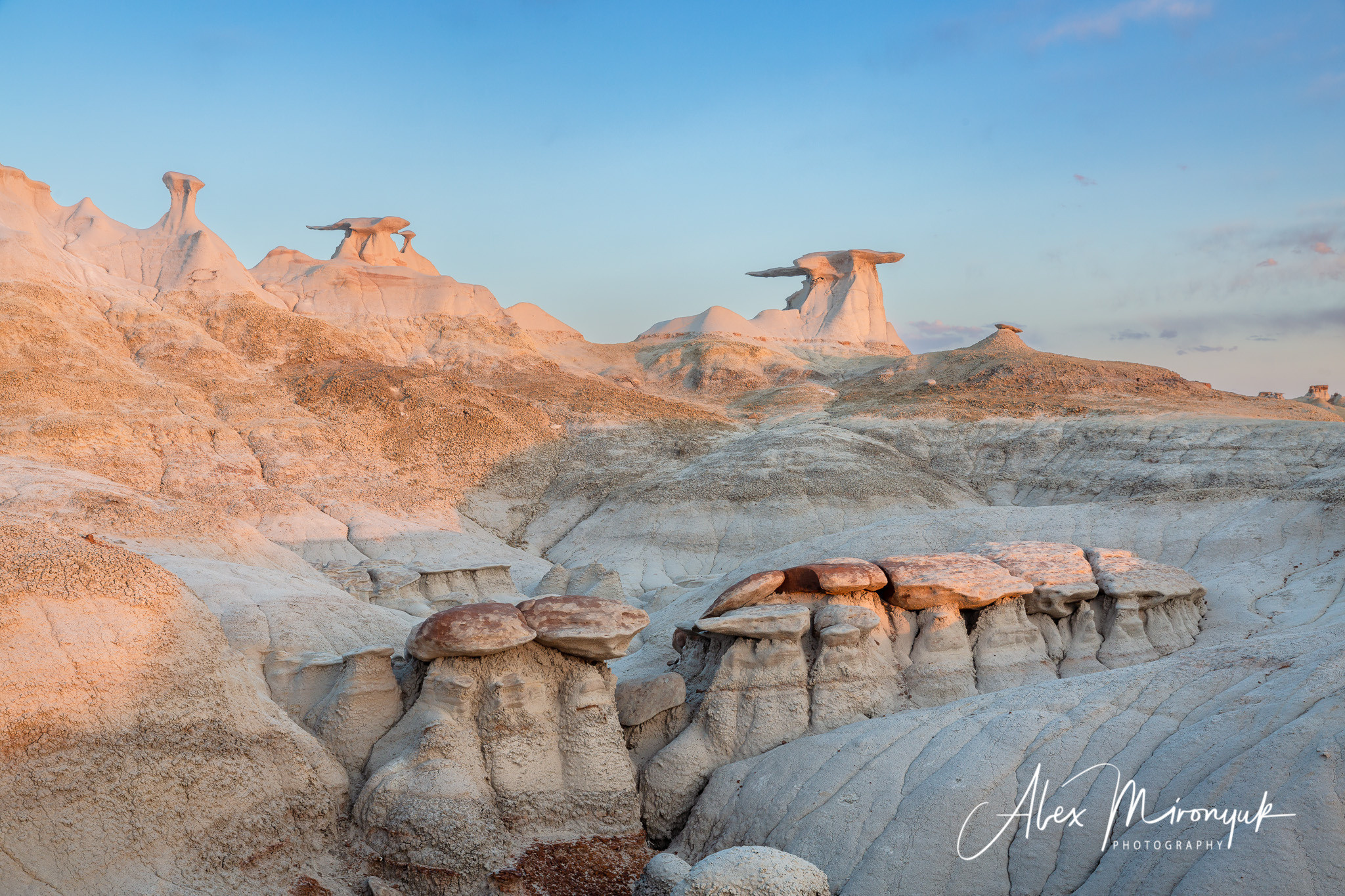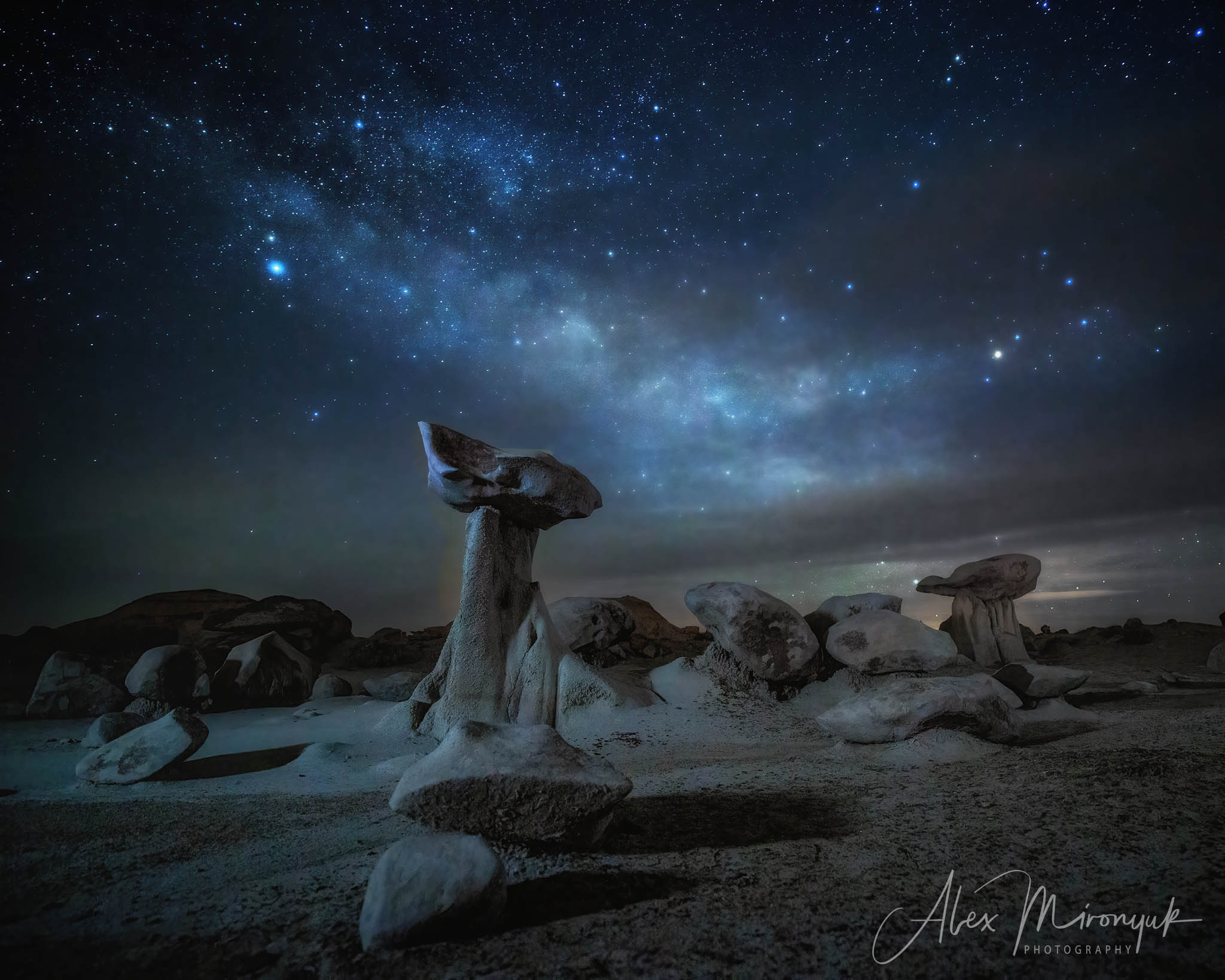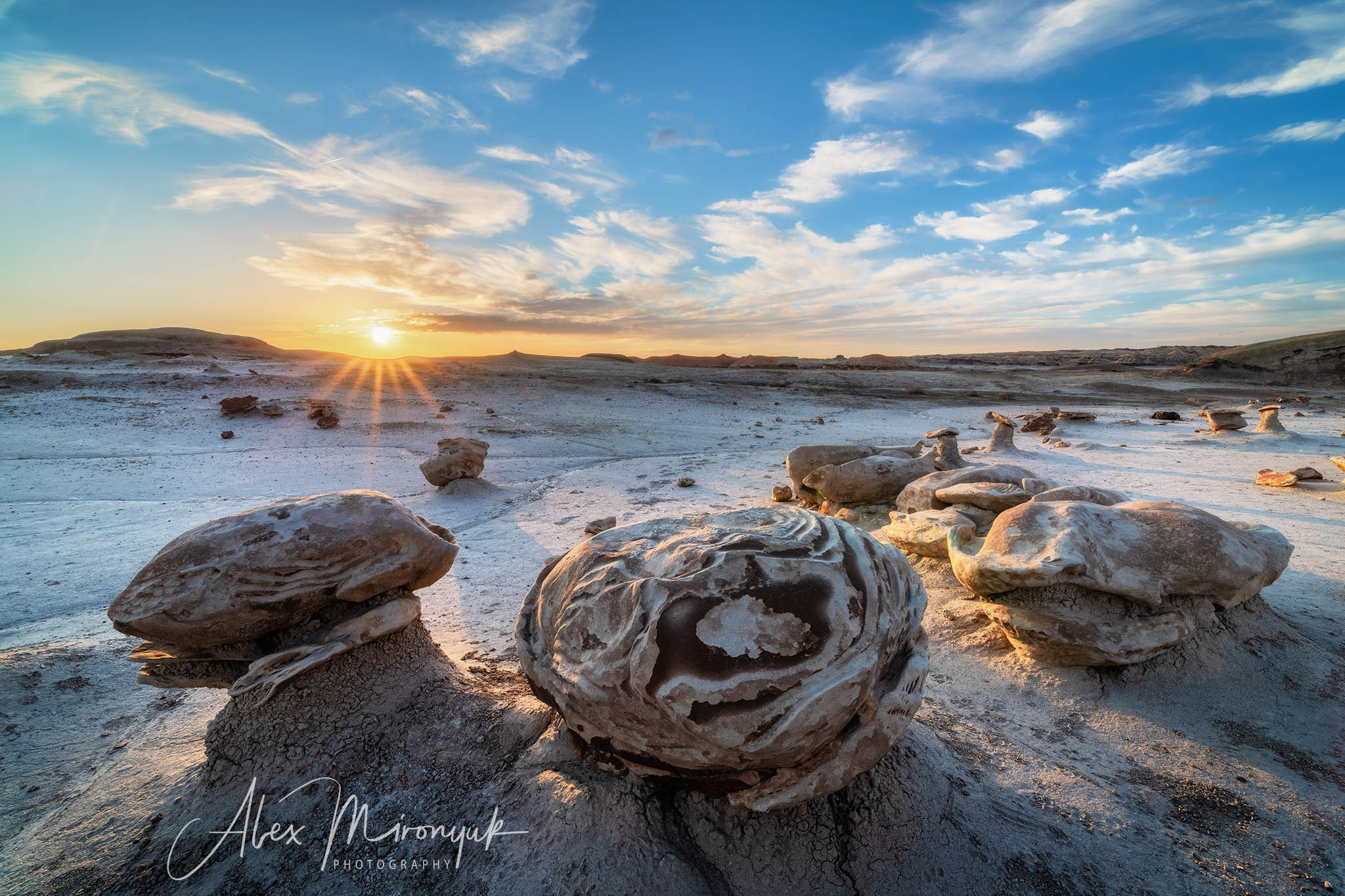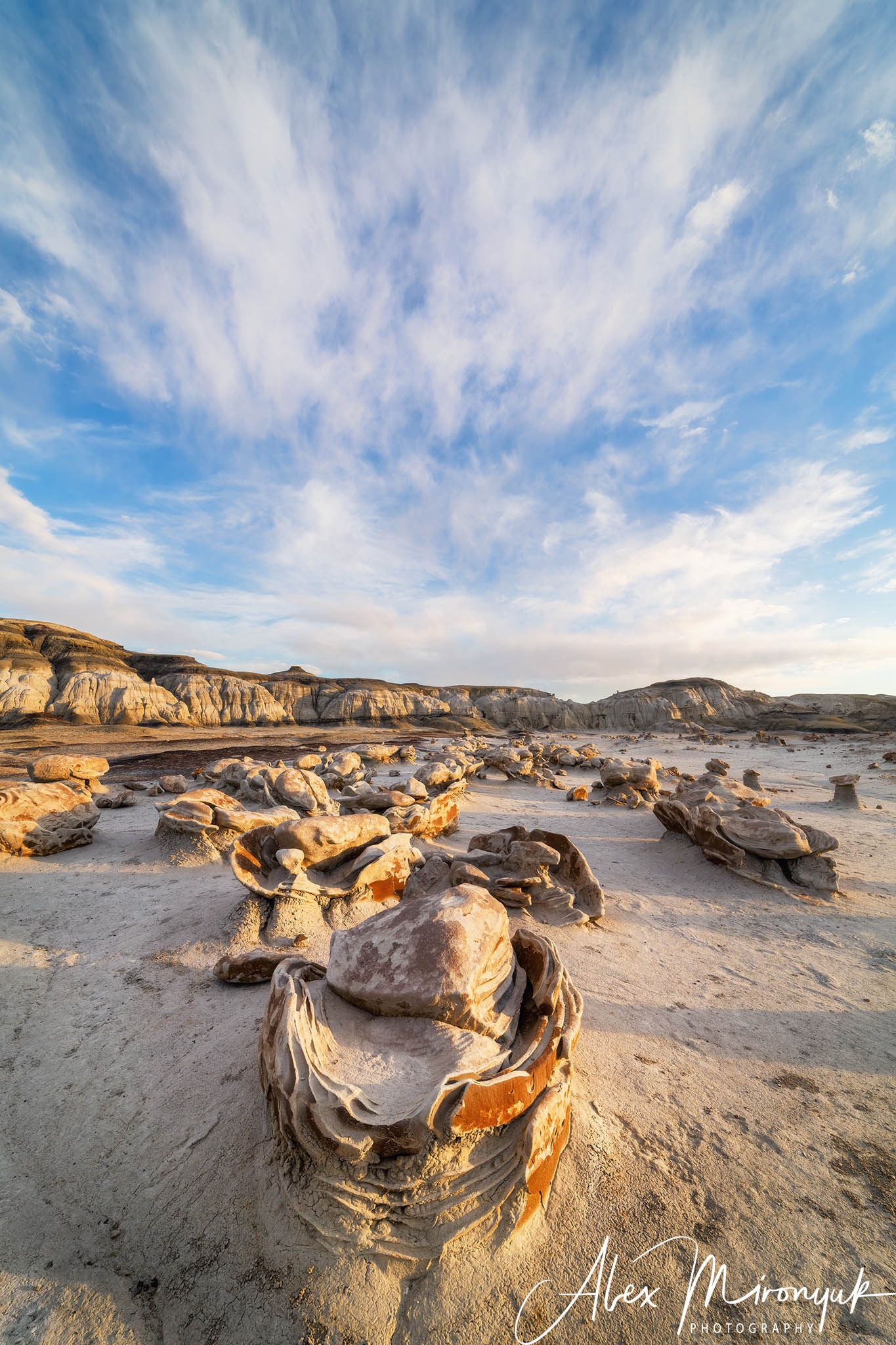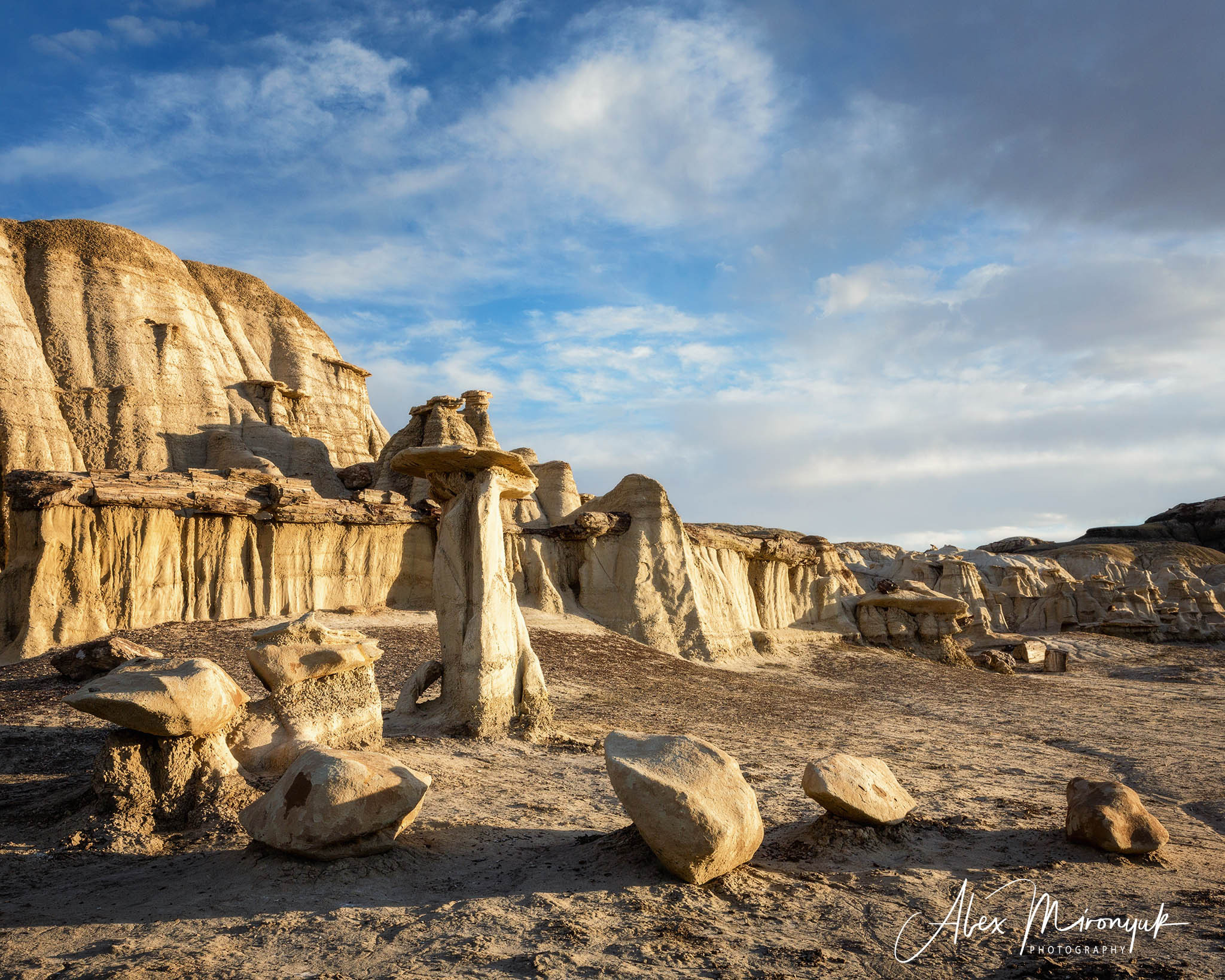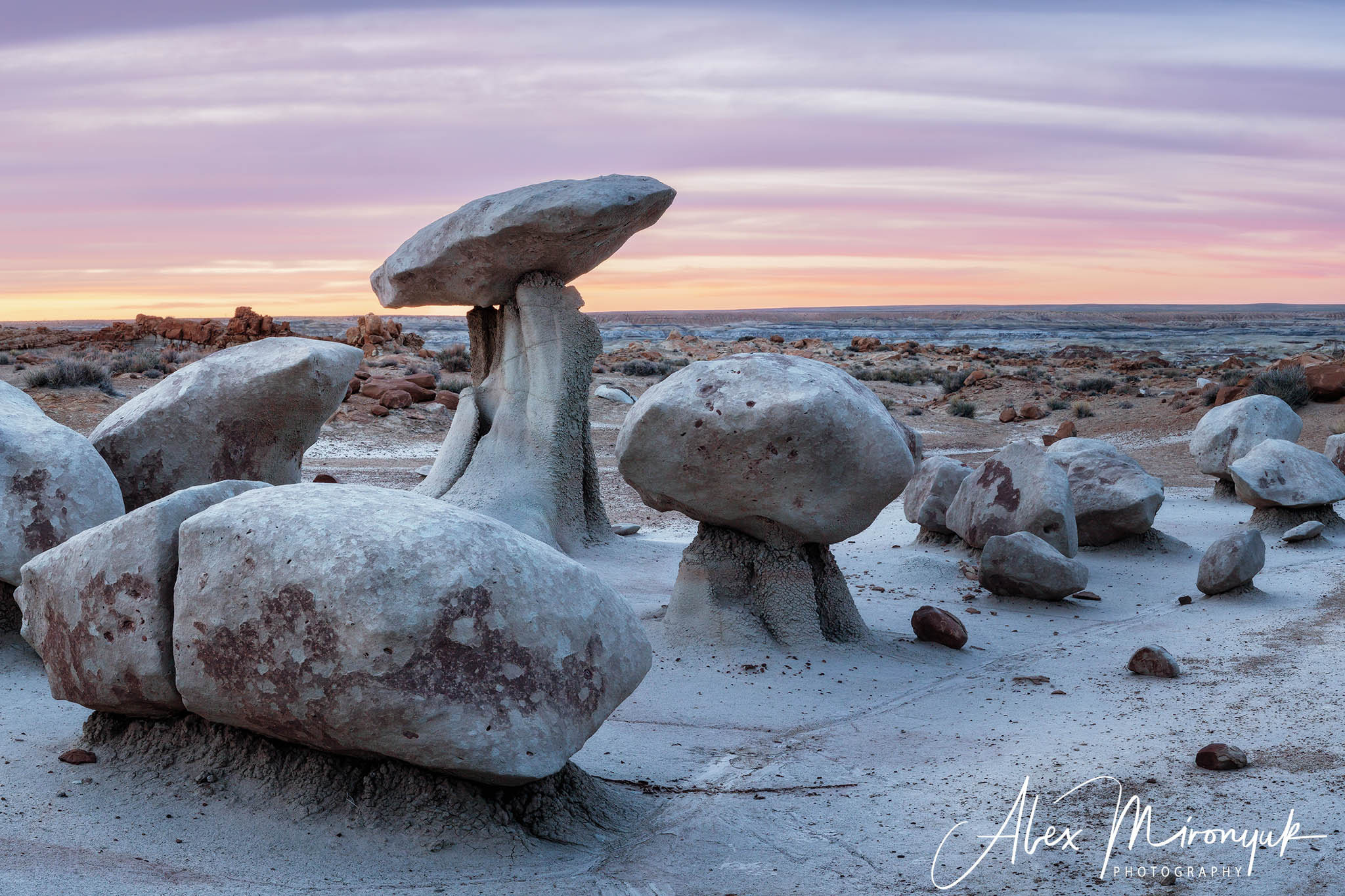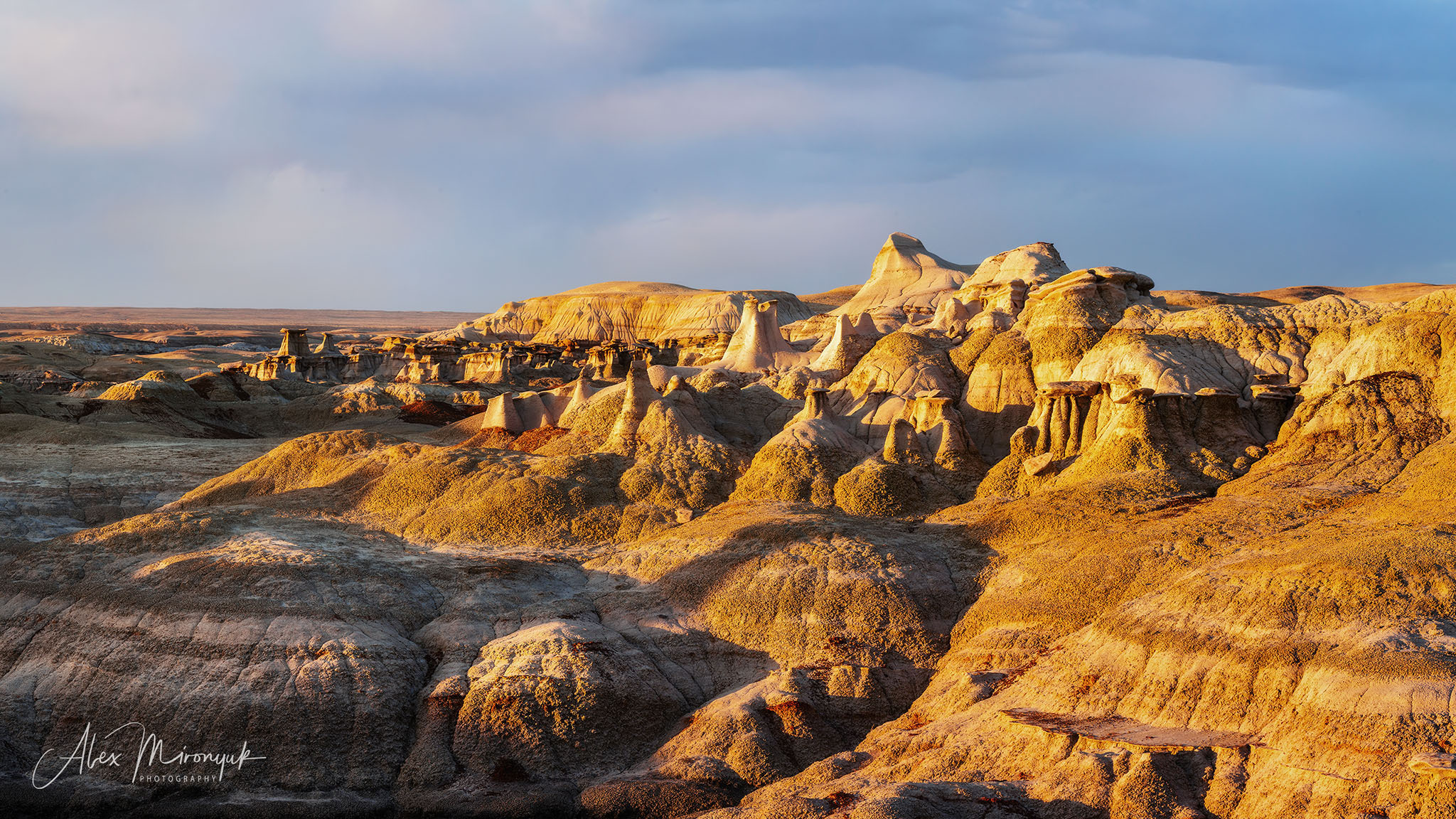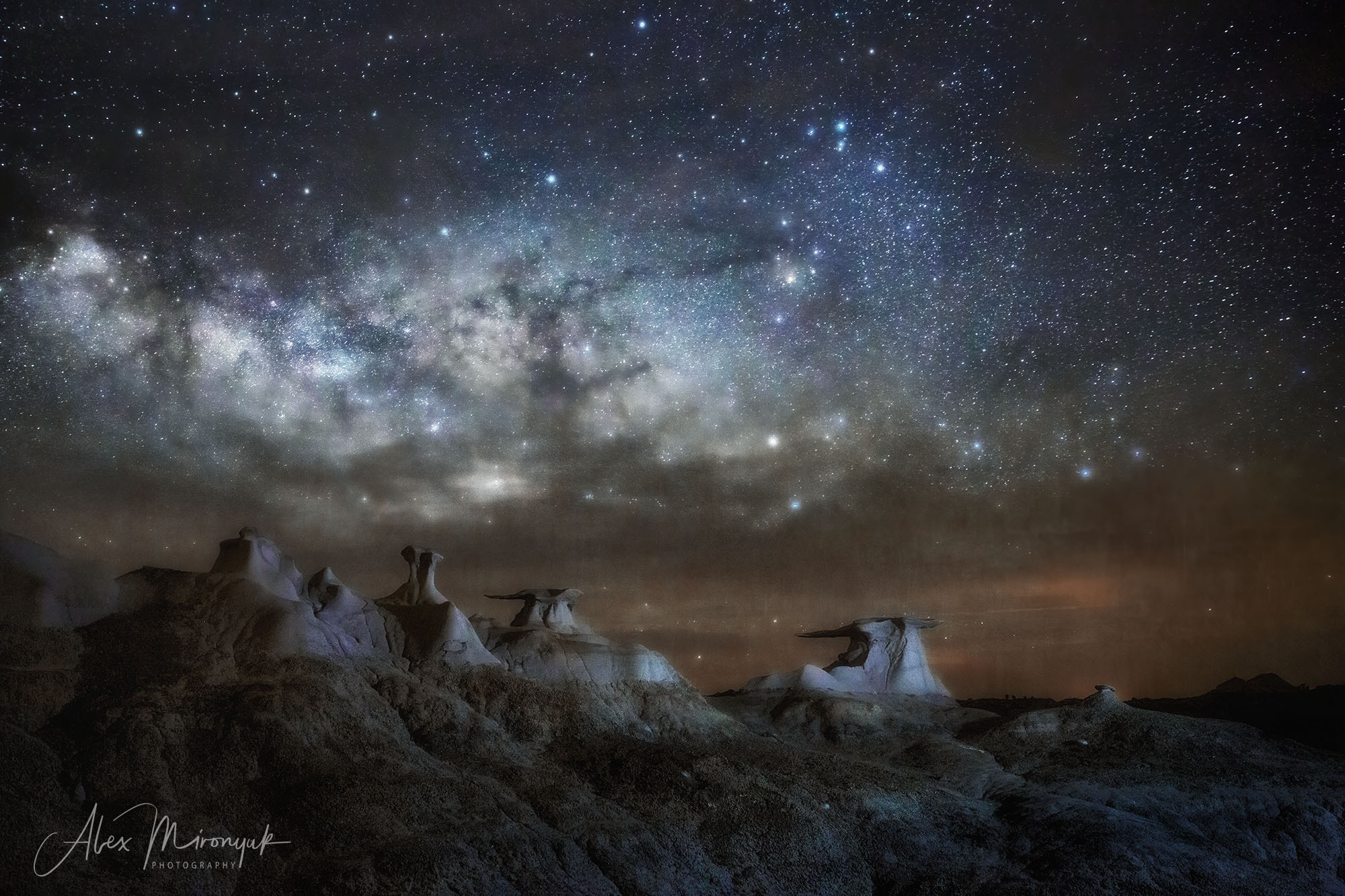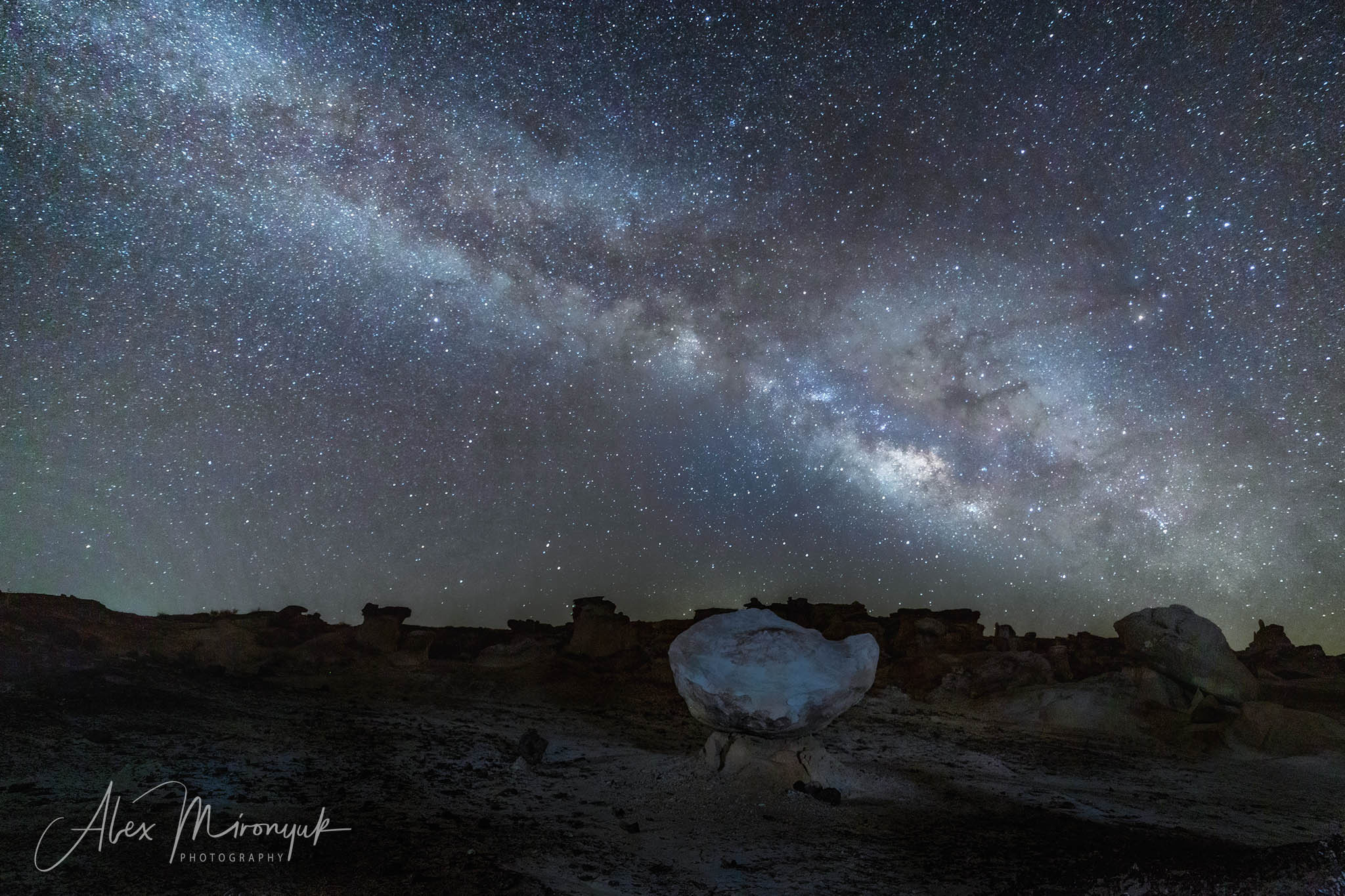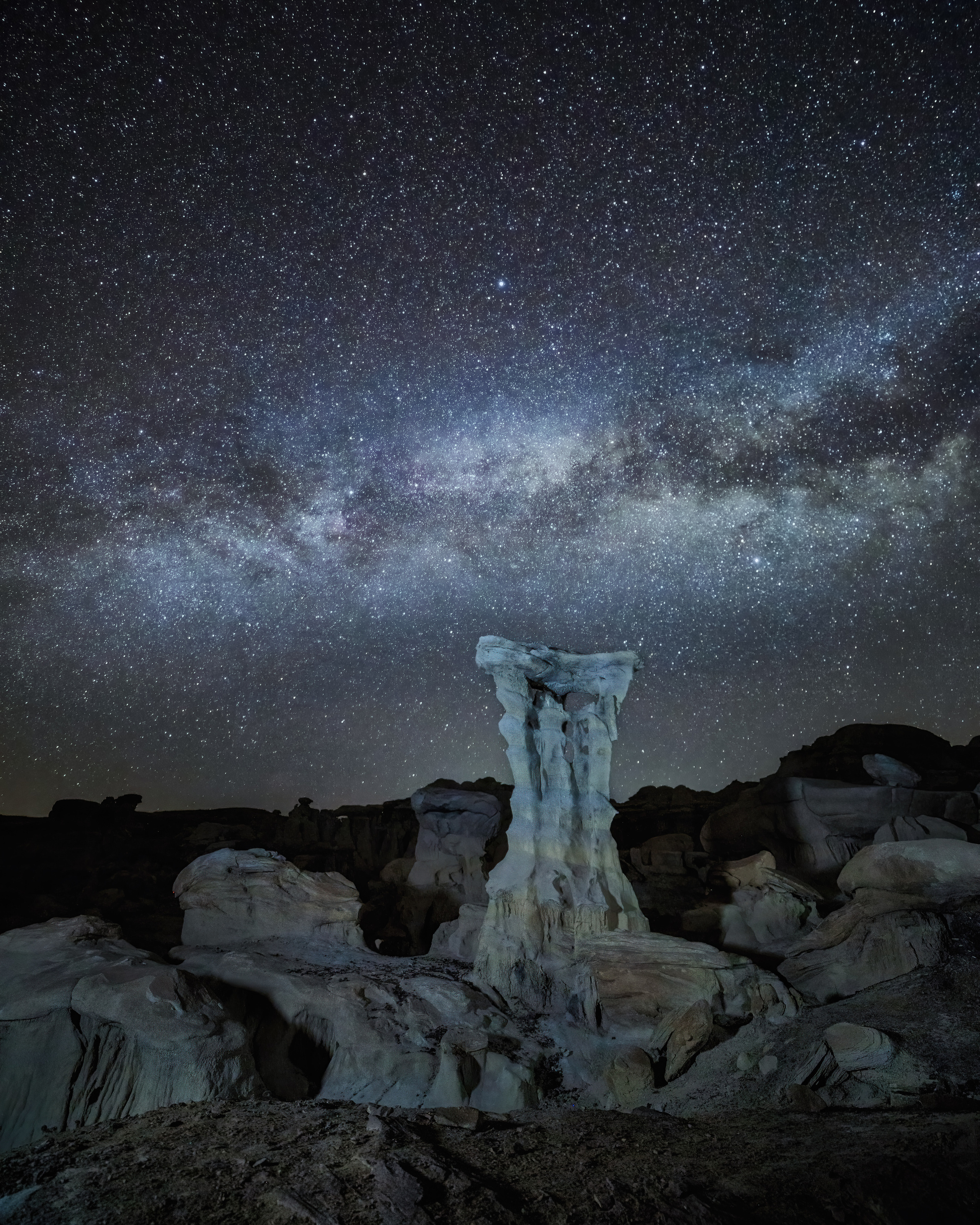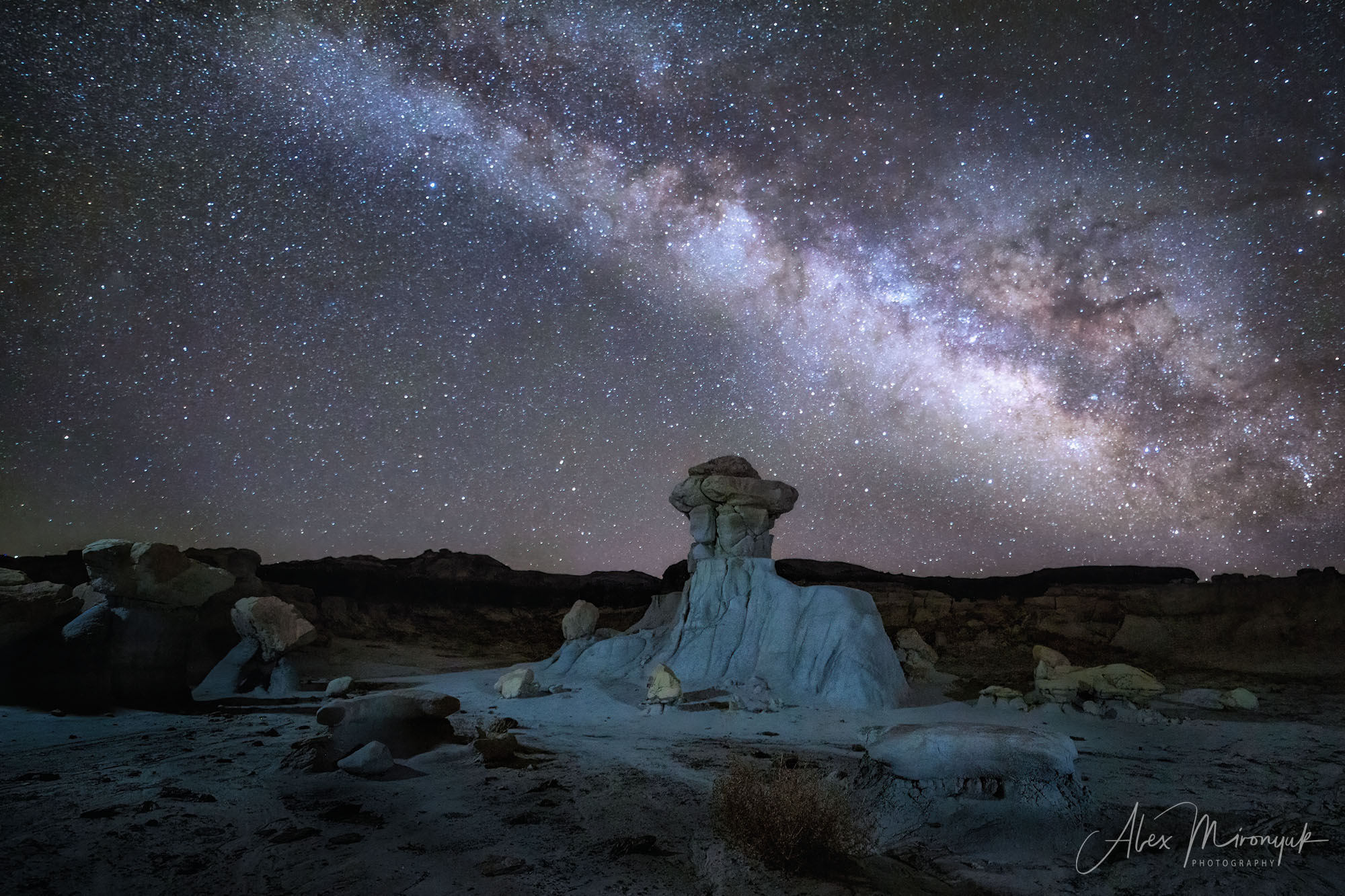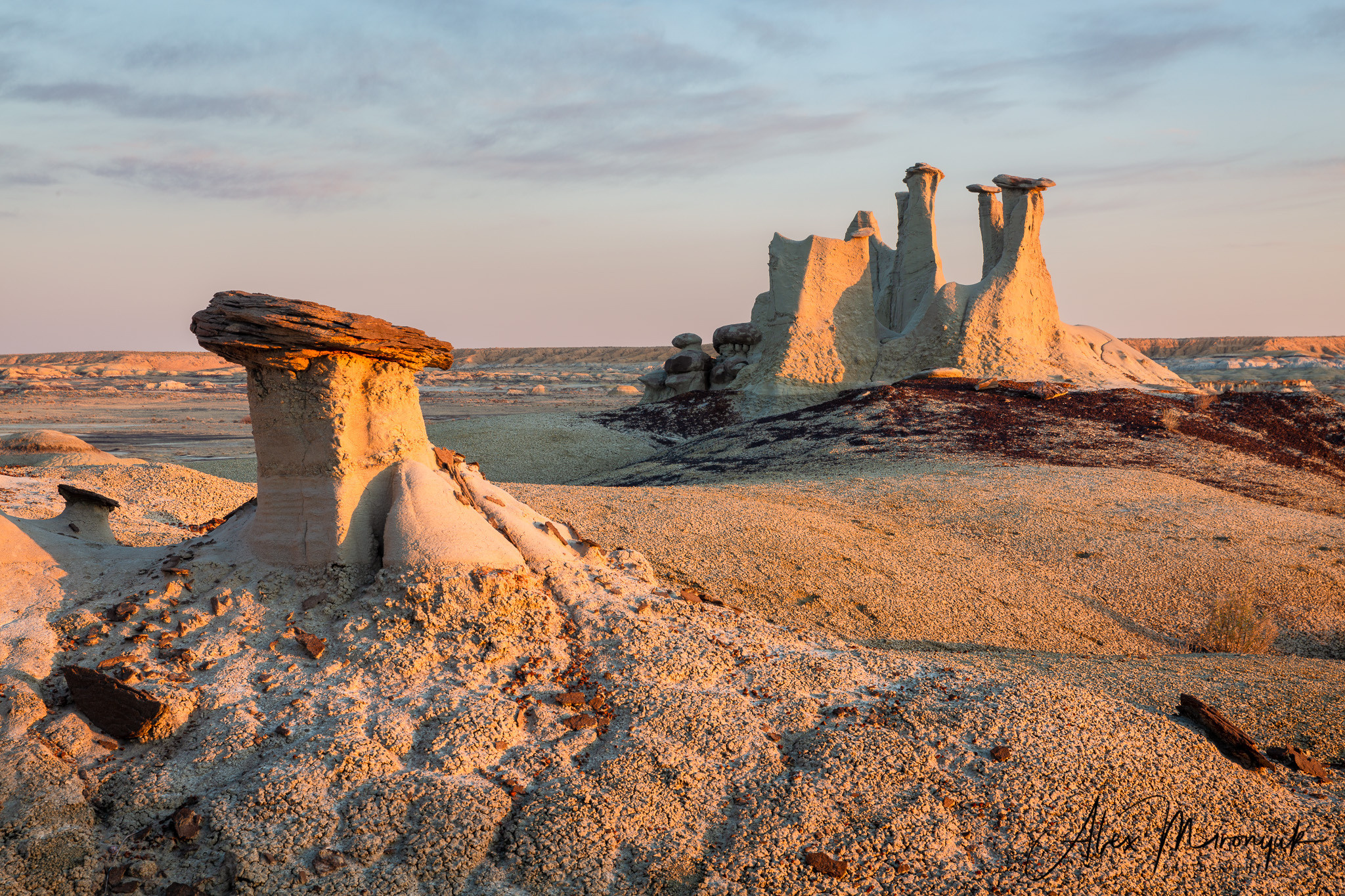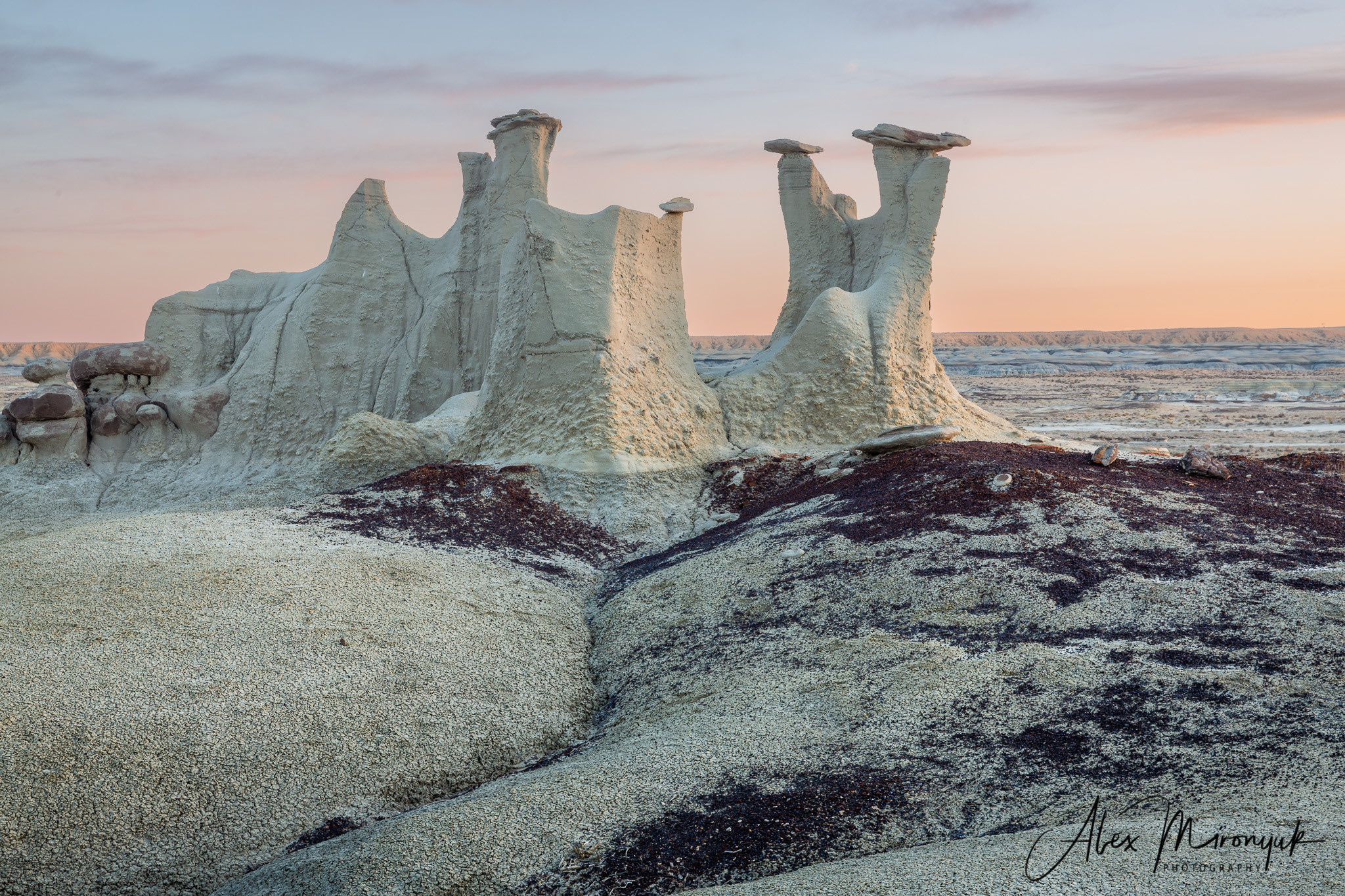Workshop Badlands of New Mexico Unlimited
Ah-Shi-Sle-Pah, Bisti, Valley of Dreams, Angel Badlands, etc.…
May 17 — 21, 2023.
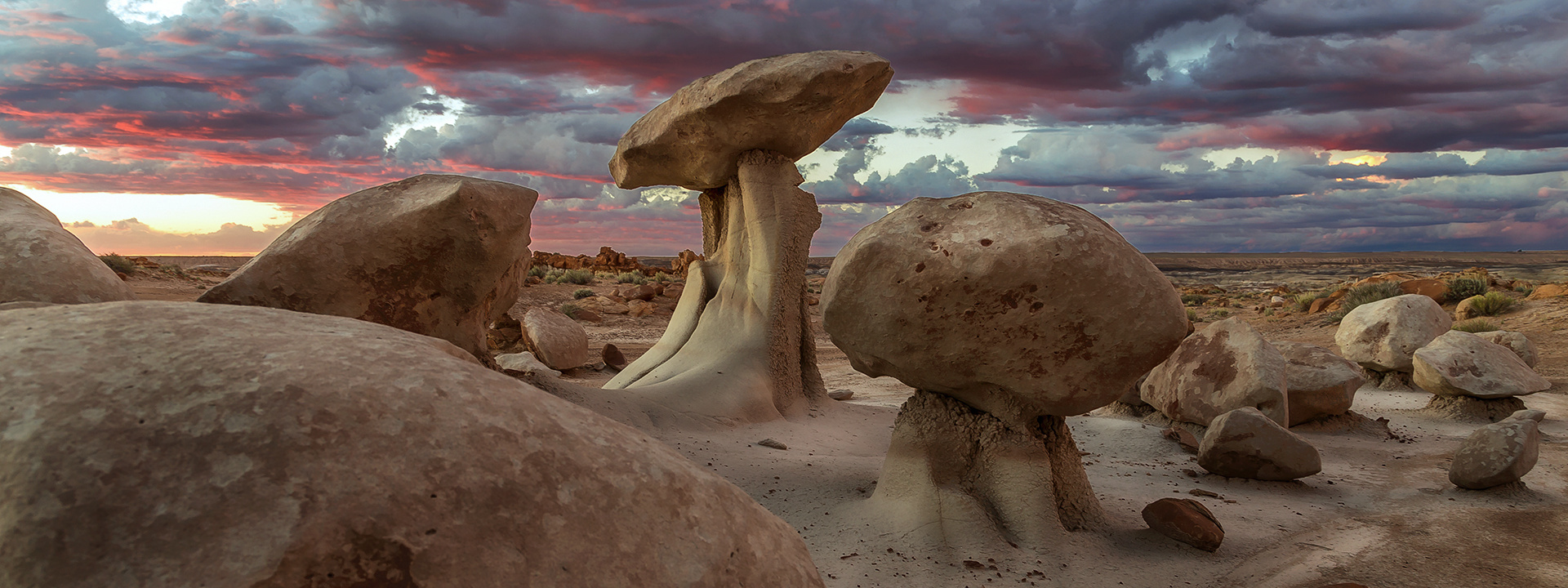
Location - San Juan Badlands Basin, North-West of New Mexico
Dates: May 17 — 21, 2023
Tuition - $1900 per participant (limit: 7 participants)
Instructor: Alex Mironyuk
Deposit: $400 (PAYMENTS ACCEPTED FOR THE REMAINDER OF THE BALANCE)
Workshop Highlights
This 5-day workshop may be in the world’s most unusual and weird destination. In the North-West of New Mexico at San Juan Badlands Basin, you can find at least ten significant badlands areas with unique rock formations. If you want to know how other planets may look, you’ll want to visit this place!
You will get a chance to photograph the San Juan Badlands Basin like you have never seen it before. I will lead you to photograph my favorite places around the badlands desert.
We will cover at least three different night photography techniques.
This workshop will master your photography skills and boost your creative process. This workshop is hands-on, and I will be with you every step, covering composition, camera settings, chasing the light, nighttime photography, focus stacking, panorama shooting, and much more.
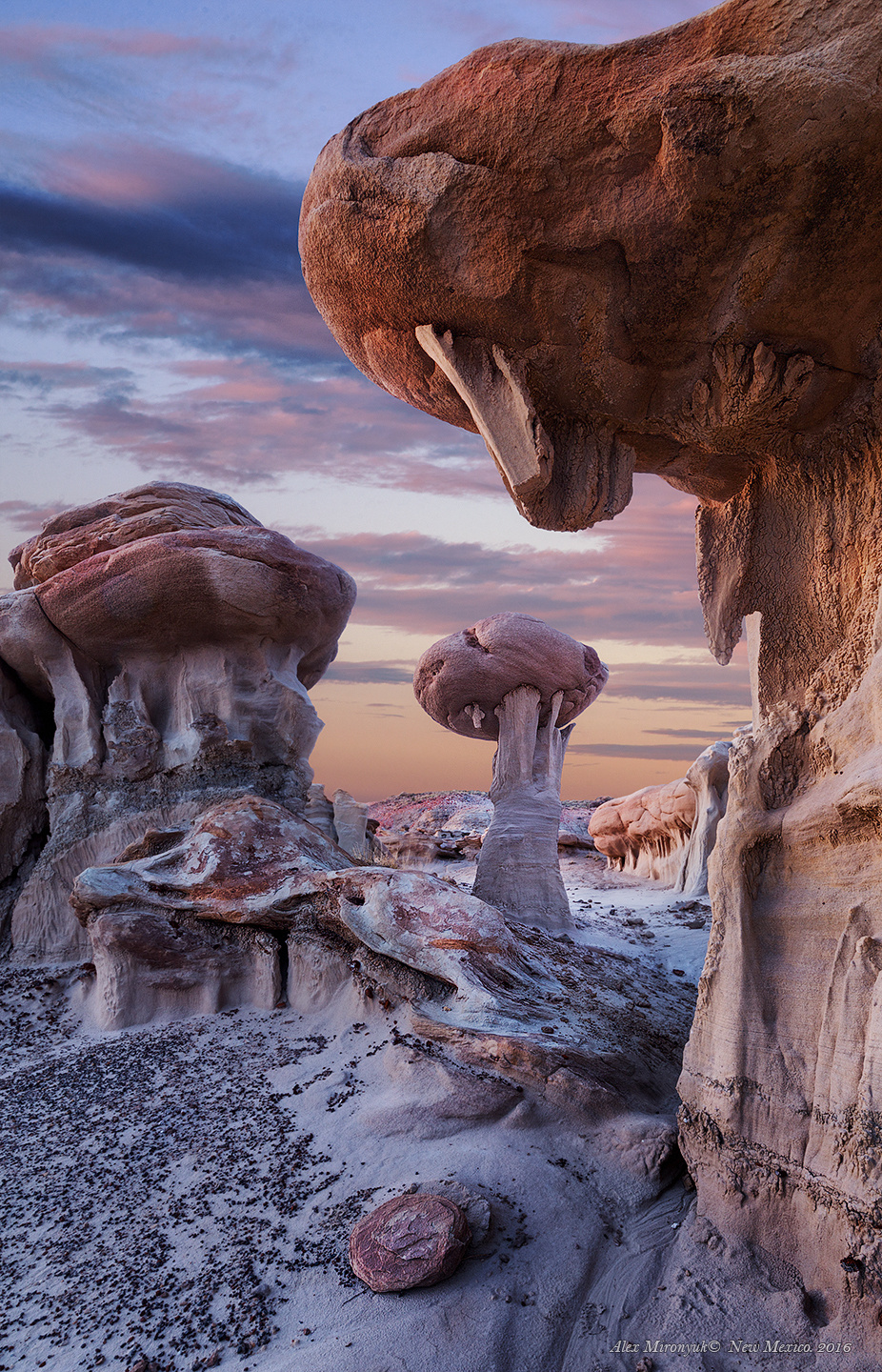
We will see the world-famous Bisti Wilderness Badlands, Ah-Shi-Sle-Pah Wilderness Study Area, and Valley of Dreams Badlands. Those places are unique photo destinations where you have to have your camera ready 24/7 to capture different hoodoos, mounds, petrified woods, etc. We will perform a couple of overnight hikes to see and photograph beautiful hoodoos and ridges at “golden hours” and night with the Milky Way over our heads. You will be guided by yours truly and my team.
Physical Difficulty: Moderate to strength. This Workshop Involves daily hikes over sandstone and through clay in some locations. The longest hike is 7-8 miles in the Bisti Wilderness and features anywhere from 0 — 75 ft elevation gain.
Fitness Level: Like any outdoor nature photography workshop, a reasonable degree of fitness is ideal. We will not be engaging in any strenuous physical activity.
Transportation: Transportation is included if you agree to camp in a tent in the wilderness.
If you decide to stay in a hotel — the closest major airport is Albuquerque, NM, where you can rent a car. We strongly suggest you rent reasonably high clearance, and AWD/4WD are a MUST. Driving conditions will consist of paved and unpaved roads. When possible, we prefer participants to carpool to help limit our impact and get to know each other.
Lodging: I recommend you camp in a tent all nights at the shooting locations and sleep in backcountry camping (I’ll provide camping tents). In that case, we can perform night shootings to capture the Milky Way over the badlands and learn some light painting techniques. Otherwise, you can stay at a hotel in Farmington, NM, and come back to us every morning for a sunrise shooting. But be prepared to spend about 1-1.5 hours driving time one way.
If the weather does not cooperate, we will stay at a hotel. It’s not necessary to book your hotel in advance because Farmington is beside all of the major tourist routes, and you can always find a last-minute deal.
Itinerary
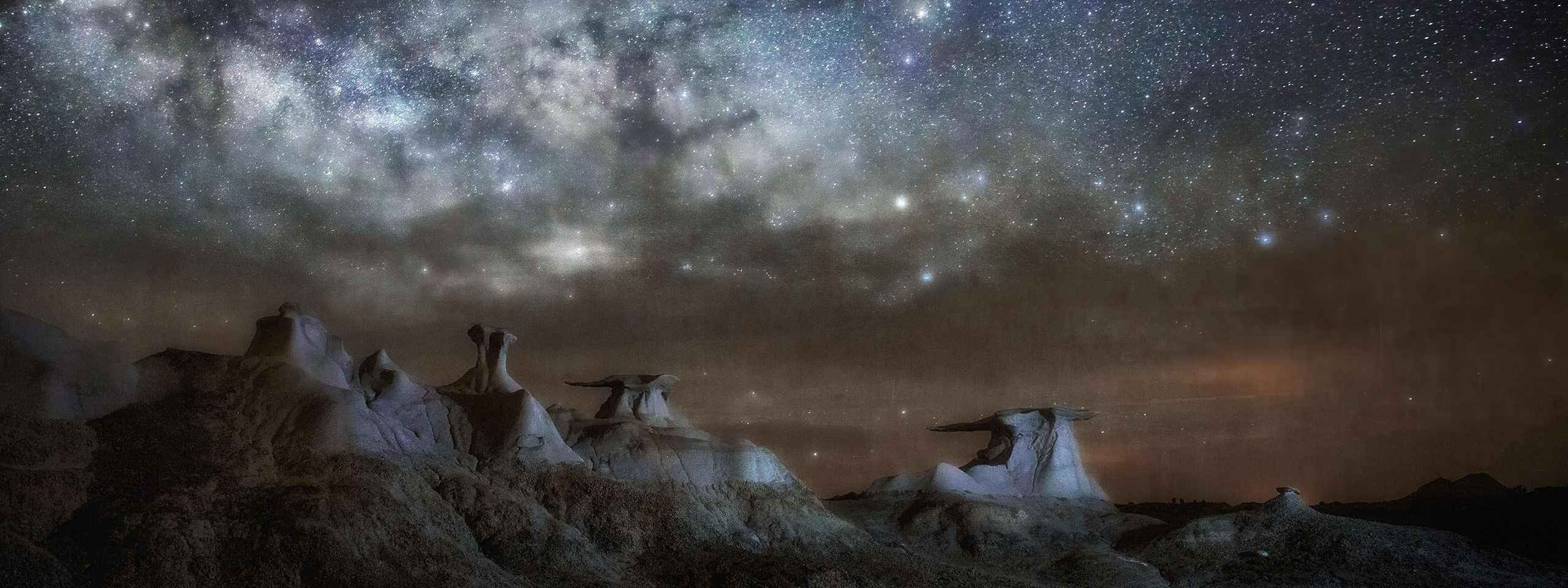
May 17, Wednesday:
If you camp — we will meet at the rent-a-car facility at Albuquerque International Airport around noon. With all other participants (with their cars), we will meet at 4 PM at the intersection of US-550 and NM-57 (GPS: 36.359777, -107.809618), where we will have a short orientation meeting
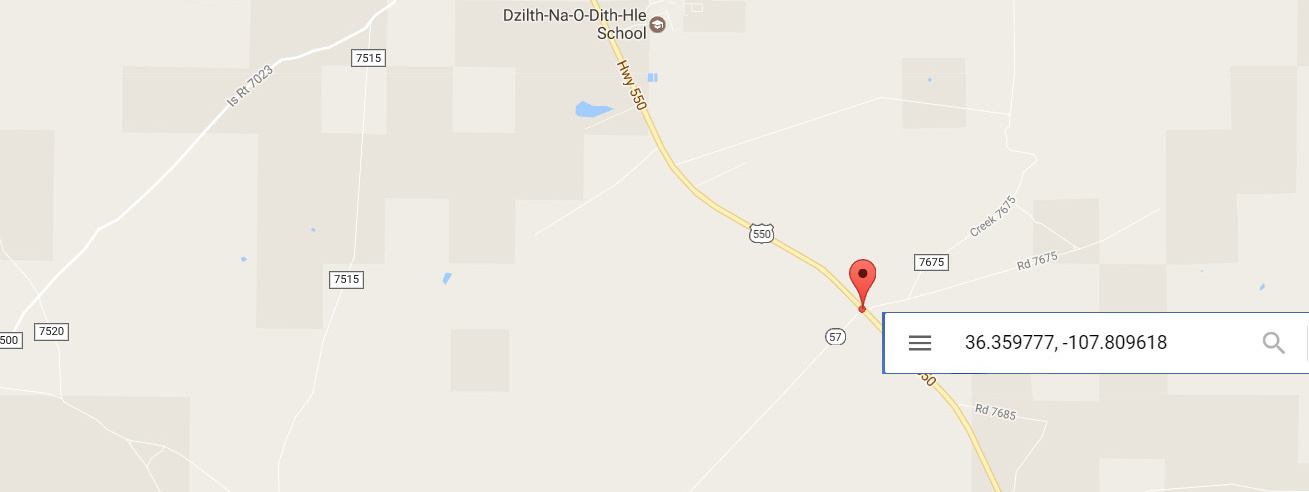
We will drive approximately 20 miles on unpaved roads and hike for about 1.5 — 2 miles with our photo and camping gear and to our sunset/camping/sunrise site. All participants must take 2 meals, snacks, and at least a gallon of water.
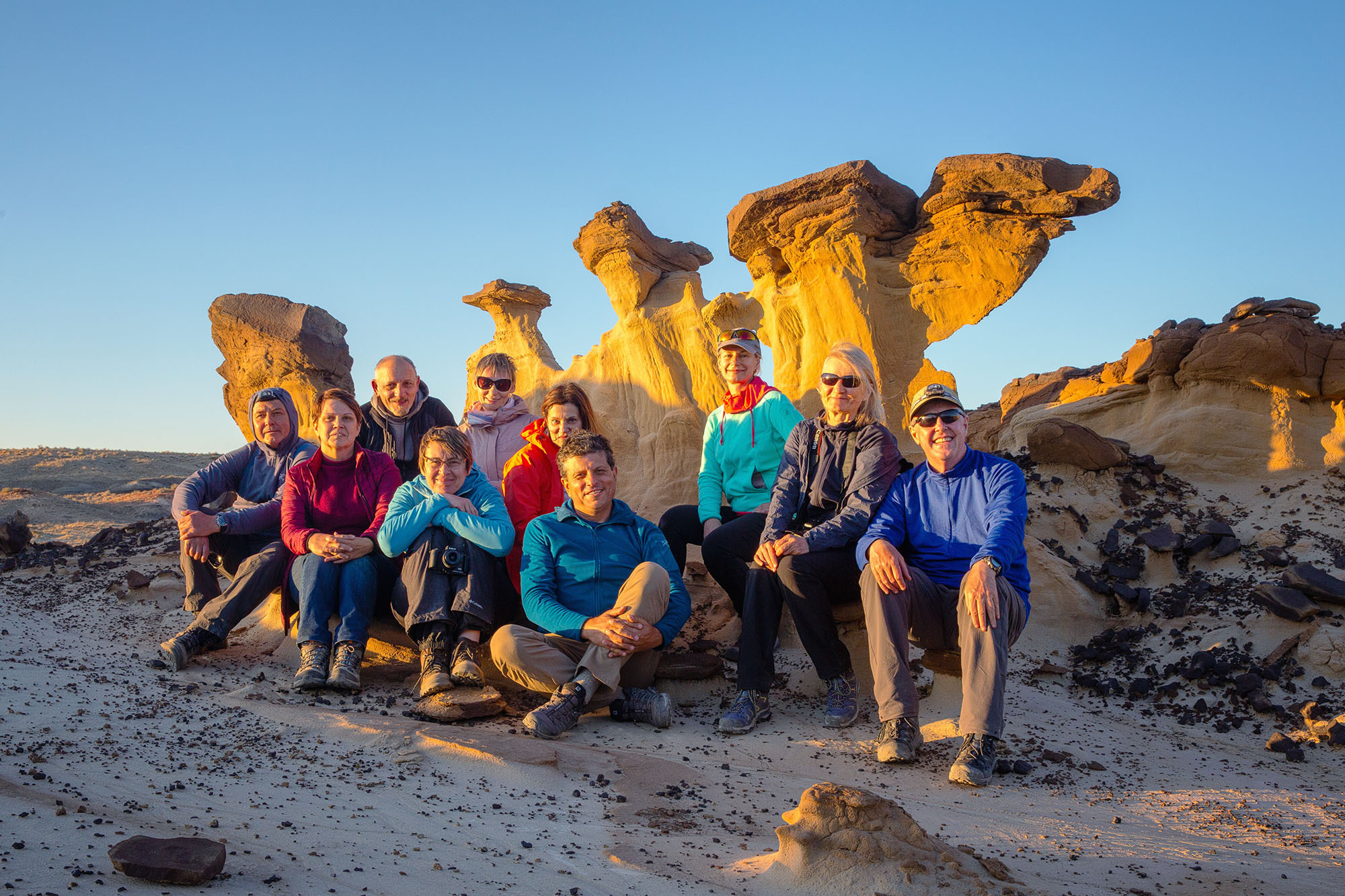
May 18, Thursday — May 20, Saturday:
Our daily schedule for all days will be pretty much the same
- We will have our pre-dawn and sunrise photo-session
- After, we will come back to our camp to have some breakfast
- We will have a couple of hours to get a nap after our night photo-shoot
- If necessary, we will relocate our camping to another place. All driving wouldn’t be longer than a 1-hour drive.
- Approximately 3 hours before sunset, we will start scouting the badlands to discover new, unusual geological formations and take pictures of them under the best possible lighting conditions.
- After that, we will have our sunset and alpenglow session. Right after that, we will start to prepare for our night shoot.
- Almost in the darkness, we will have time for food, and we can sleep a couple of hours before the Milky Way takes the proper position above us.
- Approximately 3 hours before sunrise, we will wake up to start our night photo session, which eventually turns into our sunrise session.
May 21, Sunday: We will have a 1.5 — 2 hour sunrise field session, and after that, we will break up our camp, and our workshop will be over.
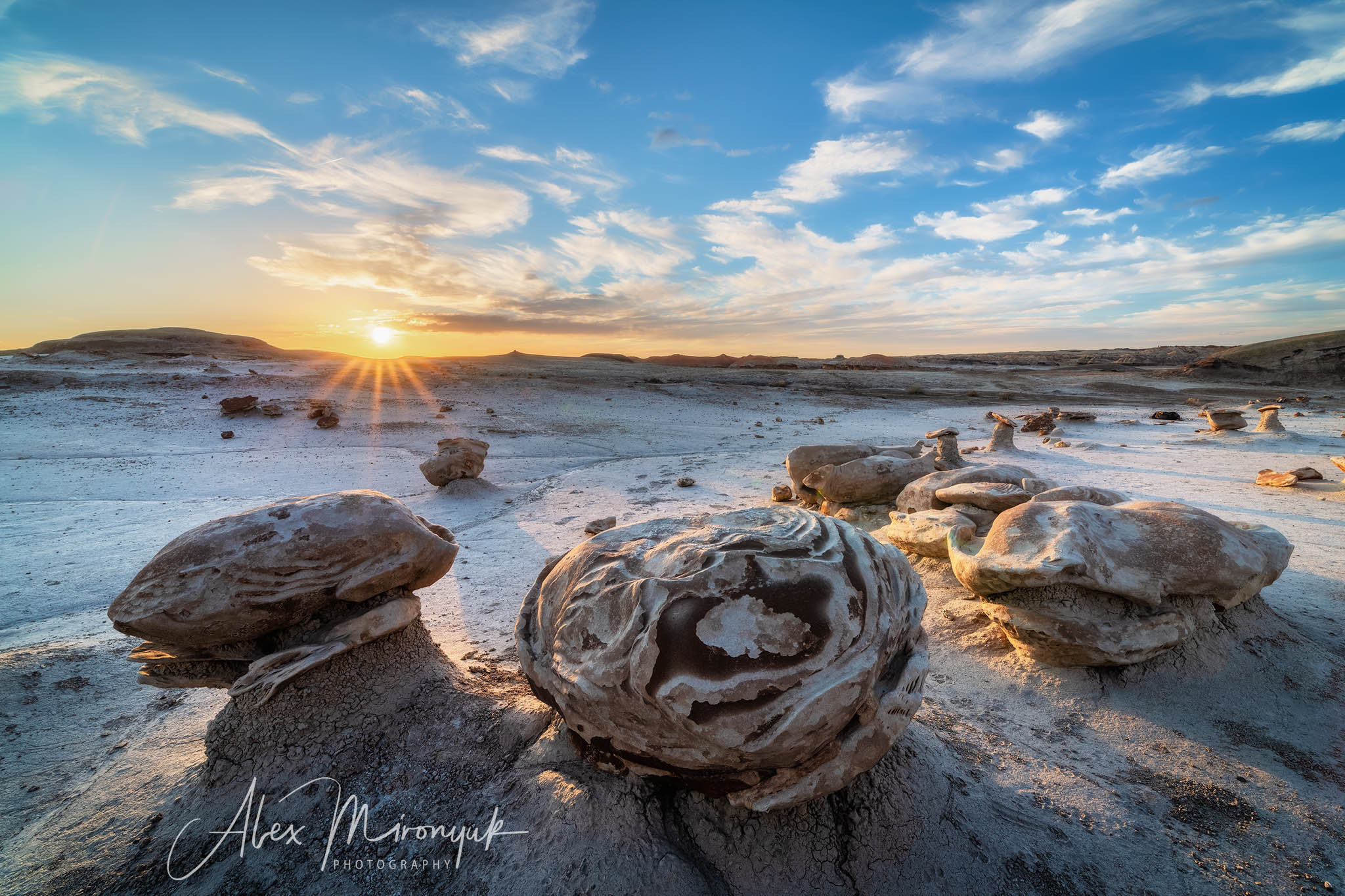
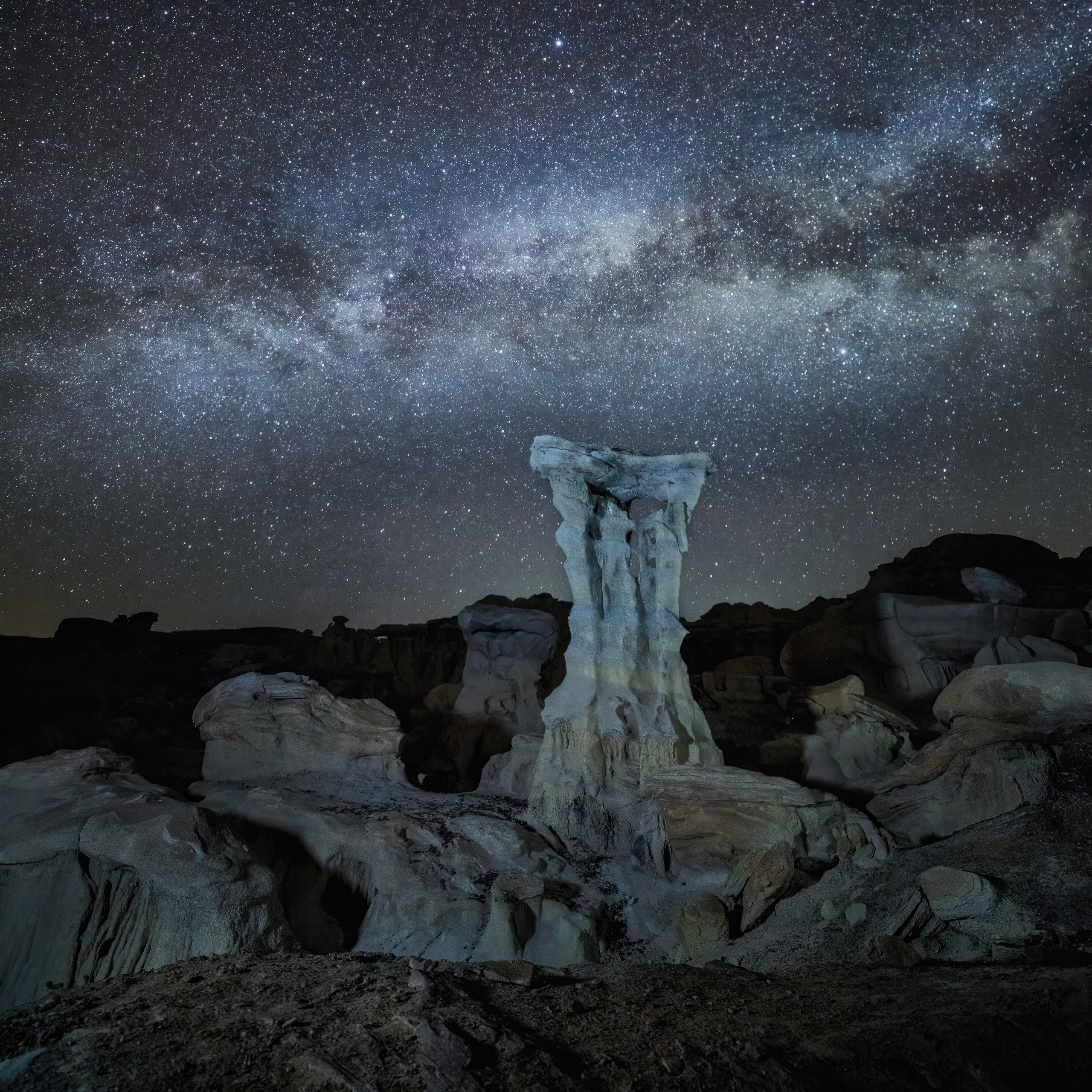
I will take into consideration weather conditions, safety concerns, as well as our participants' personal goals, and I will make decisions to put everybody in the best position possible to create compelling images. For the duration of the workshop, we will be out in the field each day, photographing before dawn, and late into the evening, breaking late night.
What we do in between depends upon the weather. If conditions are conducive to making images throughout the day, we will most likely do so. If they are not, we will hold informal theory sessions, going over basic and advanced digital workflow topics (as mentioned above.)
We will break for meals, and we will also be certain to plan for a few hours each day to nap, relax, and backup images as needed.
Payment schedule and cancellation policy:
The full tuition’s amount is $1900.
A non-refundable deposit of $400 is required to reserve a space in this workshop. The final balance of $1500 is due and payable 60 days before the workshop begins. Full tuition is due at this time, and there will be no refunds on the full amount owed if you cancel after final payment. However, If we find another client to fill your space, you will receive a full refund, minus your non-refundable deposit.
We also recommend you to purchase a travel insurance for this workshop.
If we will cancel this workshop — you will get a full refund
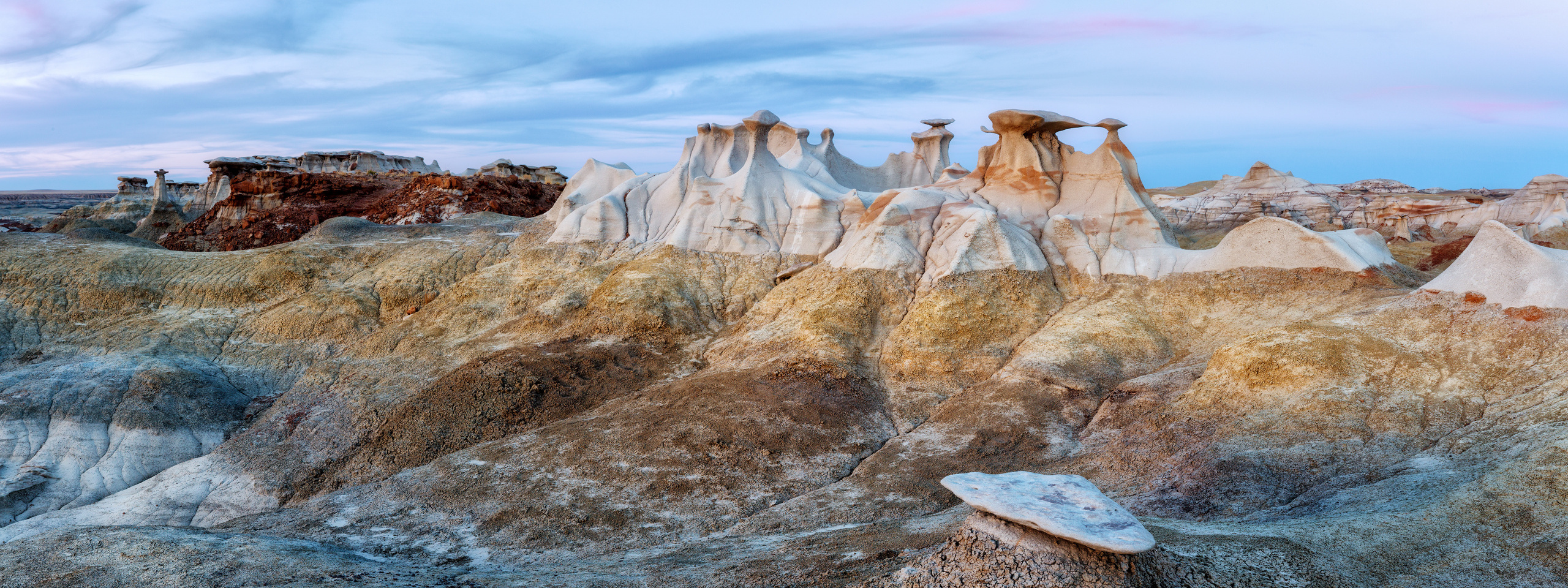
What is included:
- Expert instructions and guidance to various locations at San Juan Badlands Basin.
- In-field instruction on capture technique (composition, compensating for high dynamic range, focus stacking, creating influential sun stars, night photography, light painting, and much more)
- 1 online group webinar after the workshop to show the workflow and editing post-process for one of the Milky Way images.
- In-field recommendation on your photo gear.
- Camping tents;
- Jetboils to boil water at the camping
- An incredible, unforgettable experience, full of adventure with amazing people and loads of great photos!!!
What is NOT included:
- Lodging;
- Transportation (if you are staying in a hotel). It would be best if you got a 4×4 or AWD high clearance SUV or pickup truck to get to workshop locations. You can carpool with other participants;
- Meals, snacks, and water. Every participant has to have at least 4 gallons of water;
- Sleeping bags and sleeping pads (the temperature at night might be as low as 40 °F)
- Medical Insurance & Incidental Costs.
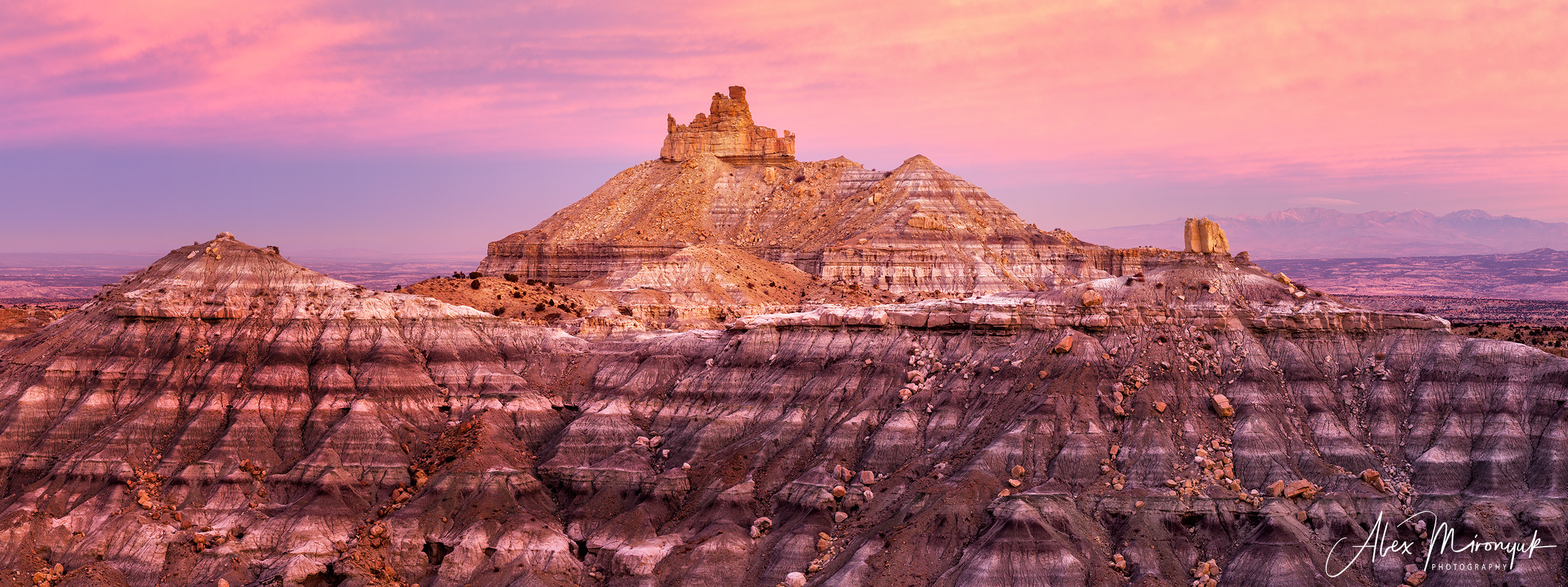
Recommended Photo Equipment:
- Camera (DSLR or Mirrorless) W/Extra Batteries And Memory Cards.
- Tripod with a ball head (leveling base is optional but very helpful to take panoramic shots).
- Car charger for your camera’s batteries
- Shutter release.
- Wide-to-standard zoom lens, with their lens hoods (I carry 14mm, 16-35mm, and 24-70mm lenses).
- Telephoto zoom lens for extraction and abstract scenes (I use a 70-200mm lens).
- Circular polarizer filter (it’s ok if you do not have one).
- Graduated neutral density filters (if you use them).
- Rocket blower and microfiber cloths for keeping glass surfaces dry and clean
- Most importantly — a great attitude!
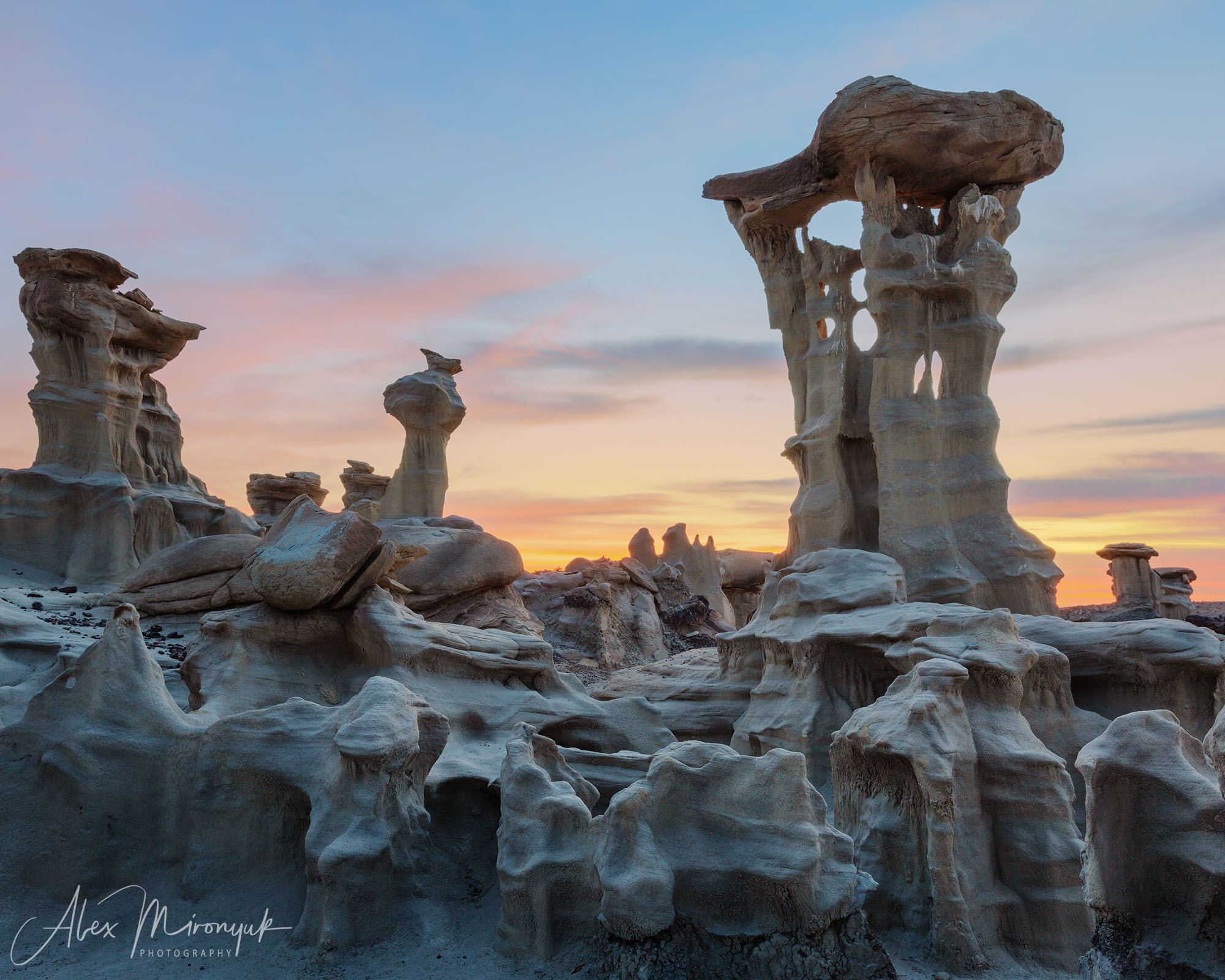
Recommended Camping Equipment:
- Sleeping bag.
- Sleeping pad.
- Flashlight or headlamp.
- Rain jacket and pants.
- Fleece jacket.
- Waterproof hiking boots.
- Extra warm clothing for possible cold weather conditions, including long underwear, hats, and gloves.
- Backpack (bag) to carry photo gear and extra camping supplies (tent, sleeping bag, food, water, clothing). I recommend you have at least a 45-55 liters backpack.
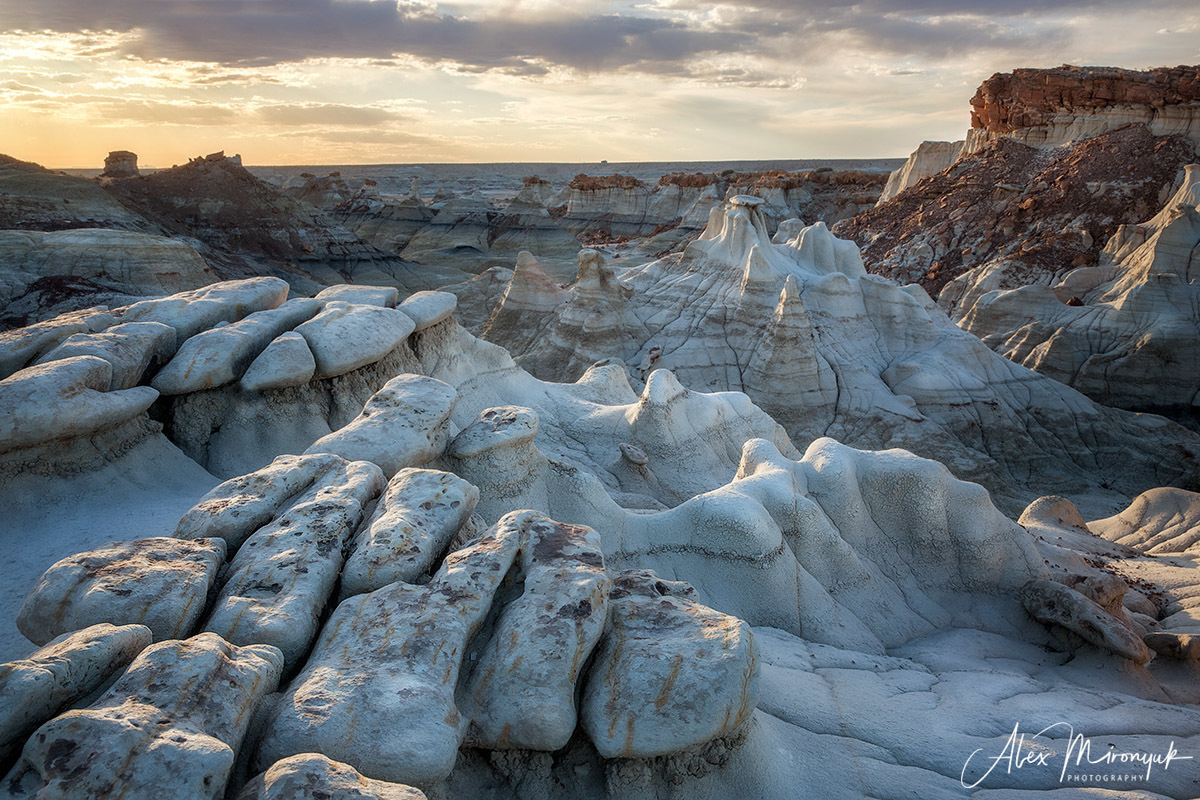
Questions? Please get in touch with me at (386) 627-1449 if you have any questions or messages.
A follow-up email will be sent to registered photographers with schedule details, recommended gear, and a liability release.
